32 ways to kitten proof your home
Looking for some simple ways to kitten proof your home so that your new fur friend stays safe? We've got you covered.
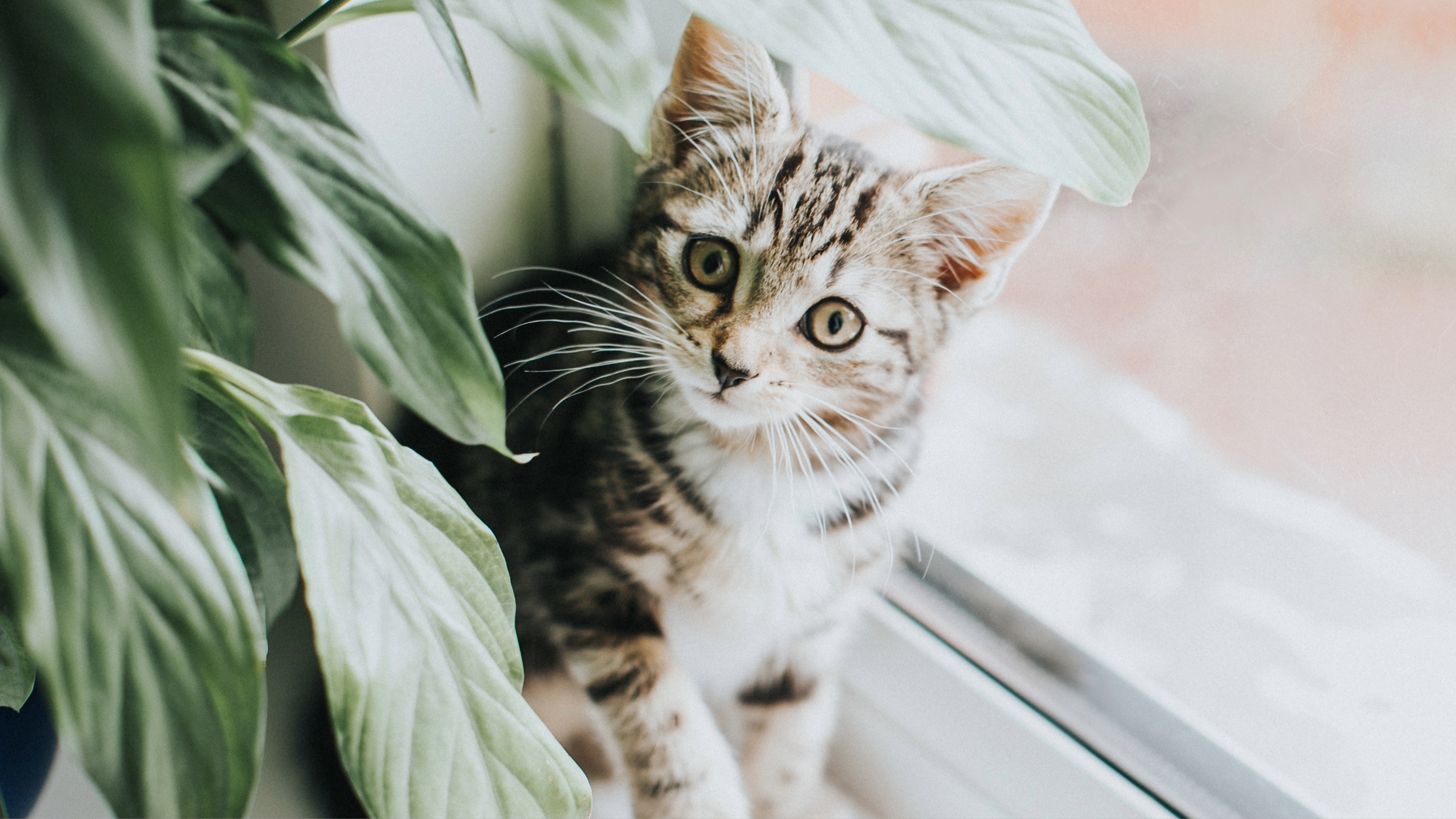
Get the best advice, tips and top tech for your beloved Pets
You are now subscribed
Your newsletter sign-up was successful
If you've just welcomed a new fur friend into your family, you're likely on the hunt for some simple and effective ways to kitten proof your home. While having a kitten in the house can bring so much joy, these little bundles of fluff have a tendency to get into mischief — which is why doing what you can to keep them safe is so important.
Alongside stocking up on the best kitten food and toys, you'll want to go through your house with a fine-toothed comb and look at anything in your current set-up that may prove to be a hazard. We often don't think about it when we don't have pets, but things like loose wires and cords, plastic bags, and craft supplies all have the potential to be dangerous to curious paws!
There are so many things to consider when you get a kitten, but prioritizing kitten-proofing your home is top of the list. To help make that job as quick and painless as possible, we've put together this handy guide with everything you need to know.
1. Secure cables and wires
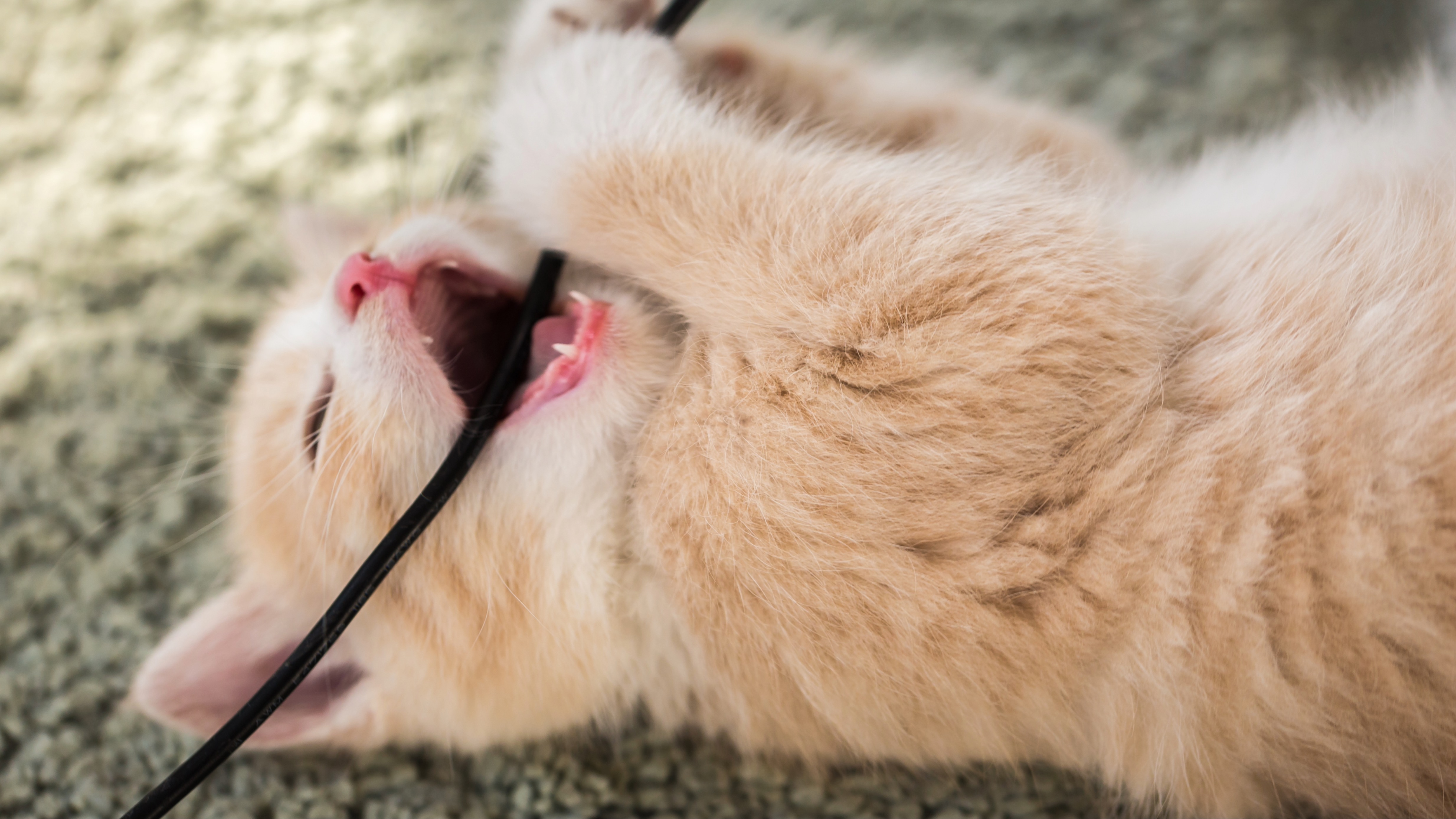
Just like babies and other animals, kittens explore the world with their mouths and nothing is more tempting than an electrical cable that they can sink their teeth into! Kittens are very drawn to things that they can make move with their paws, so to prevent them from being electrocuted, secure cables with products designed for that purpose.
2. Keep the toilet seat down
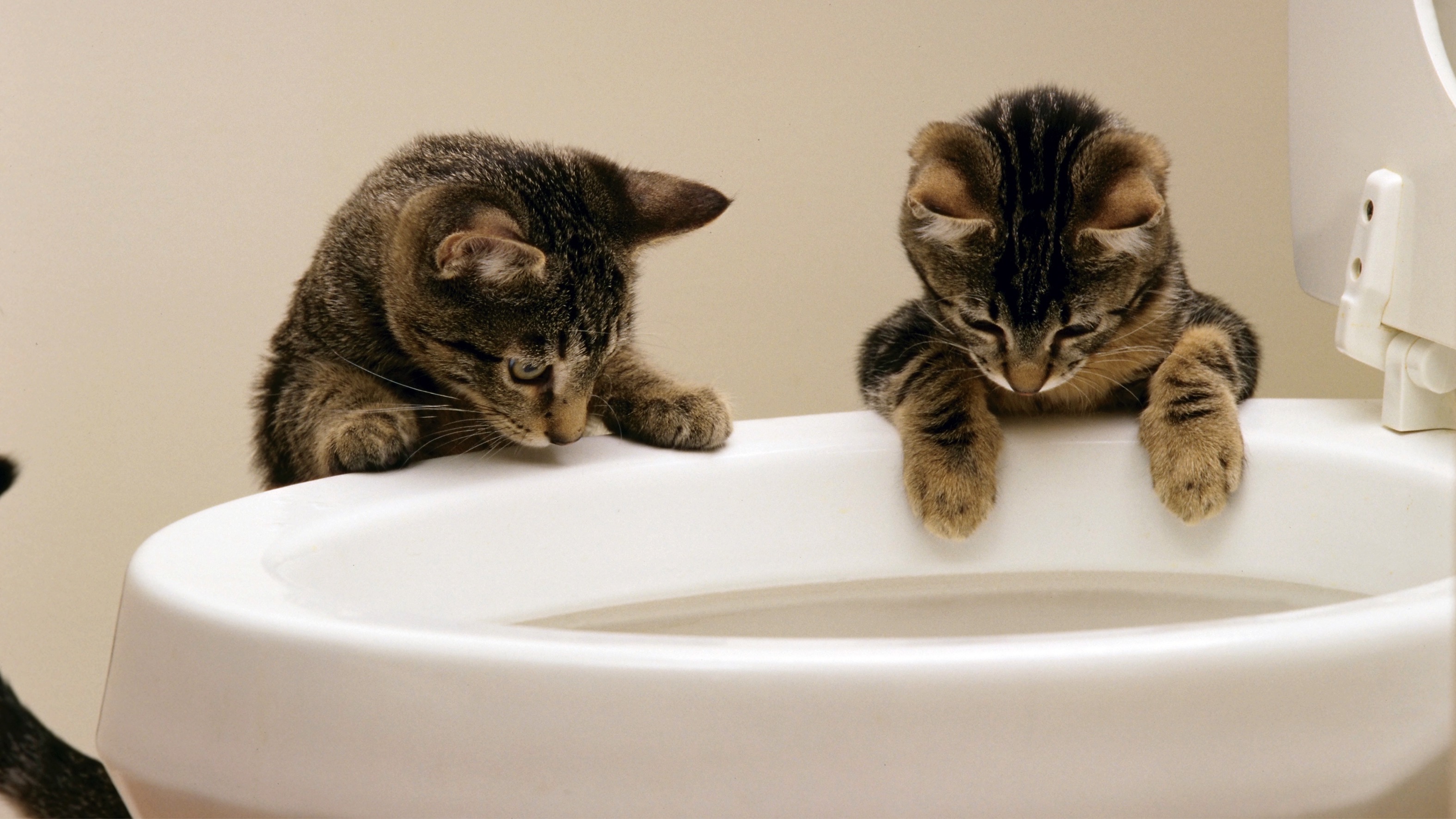
Kittens and cats aren't naturally big drinkers. Unlike their canine cousins who'll often lap up lots of water at once, our feline friends prefer to drink smaller amounts across the day — and they're always on the lookout for a new water source, regardless of whether it's clean or not! An obvious place for them is the toilet bowl, so be sure to keep the lid down as there is also the risk they may fall in and drown. Instead, invest in the best pet water fountain to encourage them to stay hydrated.
3. Lock away household chemicals
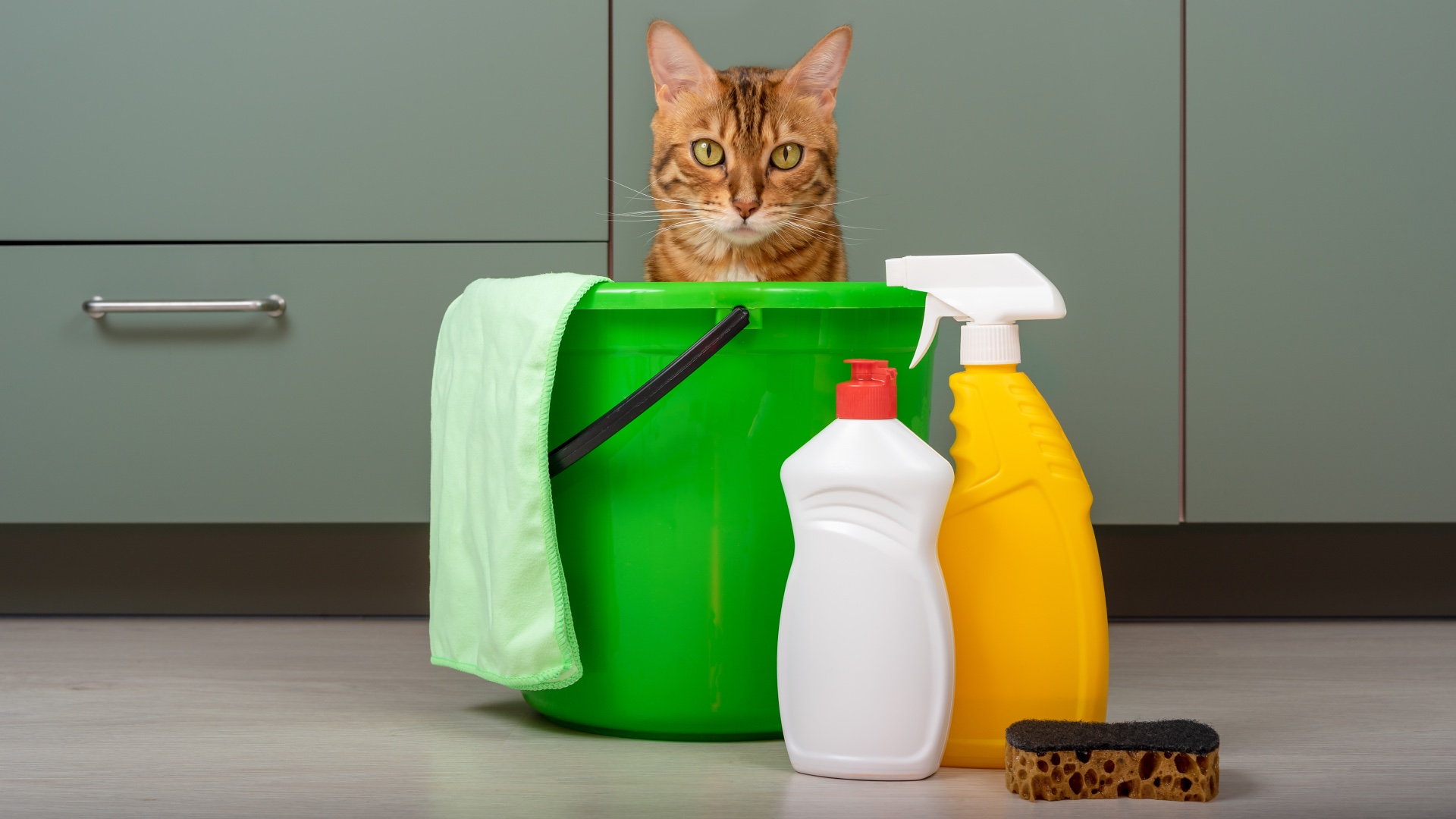
It's really important to keep all cleaning products (especially those containing bleach) out of reach of your kitten. Even if they don't attempt to take a sip from the cleaning solution in your bucket or sink, the fumes alone can cause distress to their very delicate respiratory system.
4. Keep sharp objects out of reach
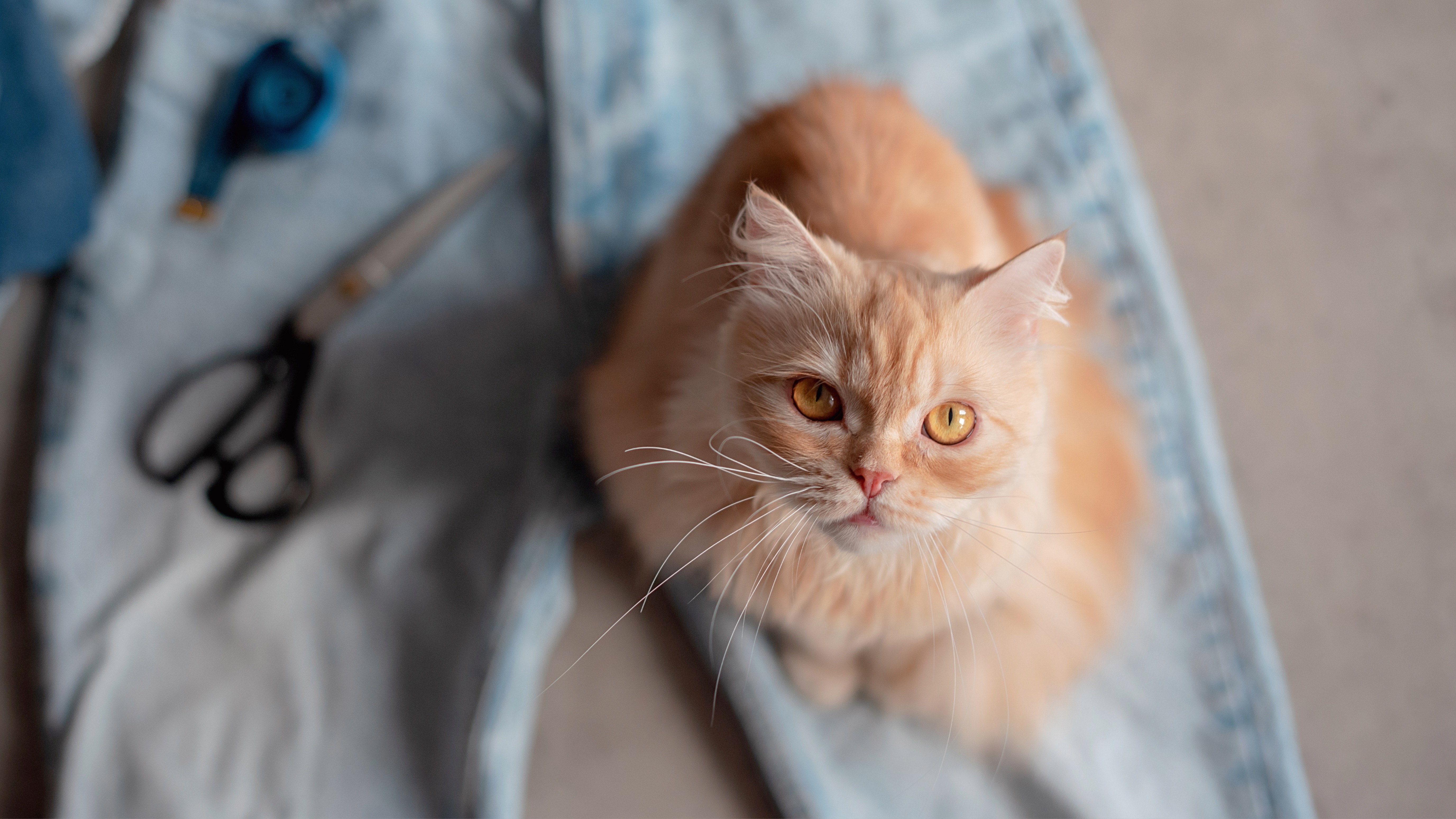
It's important to go through your home with a fine-toothed comb and store away any sharp objects that could potentially pose a threat to your kitten. Think of things like razors, scissors, needles, safety pins, and items that could break into small and sharp pieces. Unfortunately, some kittens will attempt to chew on or swallow these items and if they obstruct the intestines, they could require surgery.
Get the best advice, tips and top tech for your beloved Pets
5. Know which plants and flowers are toxic
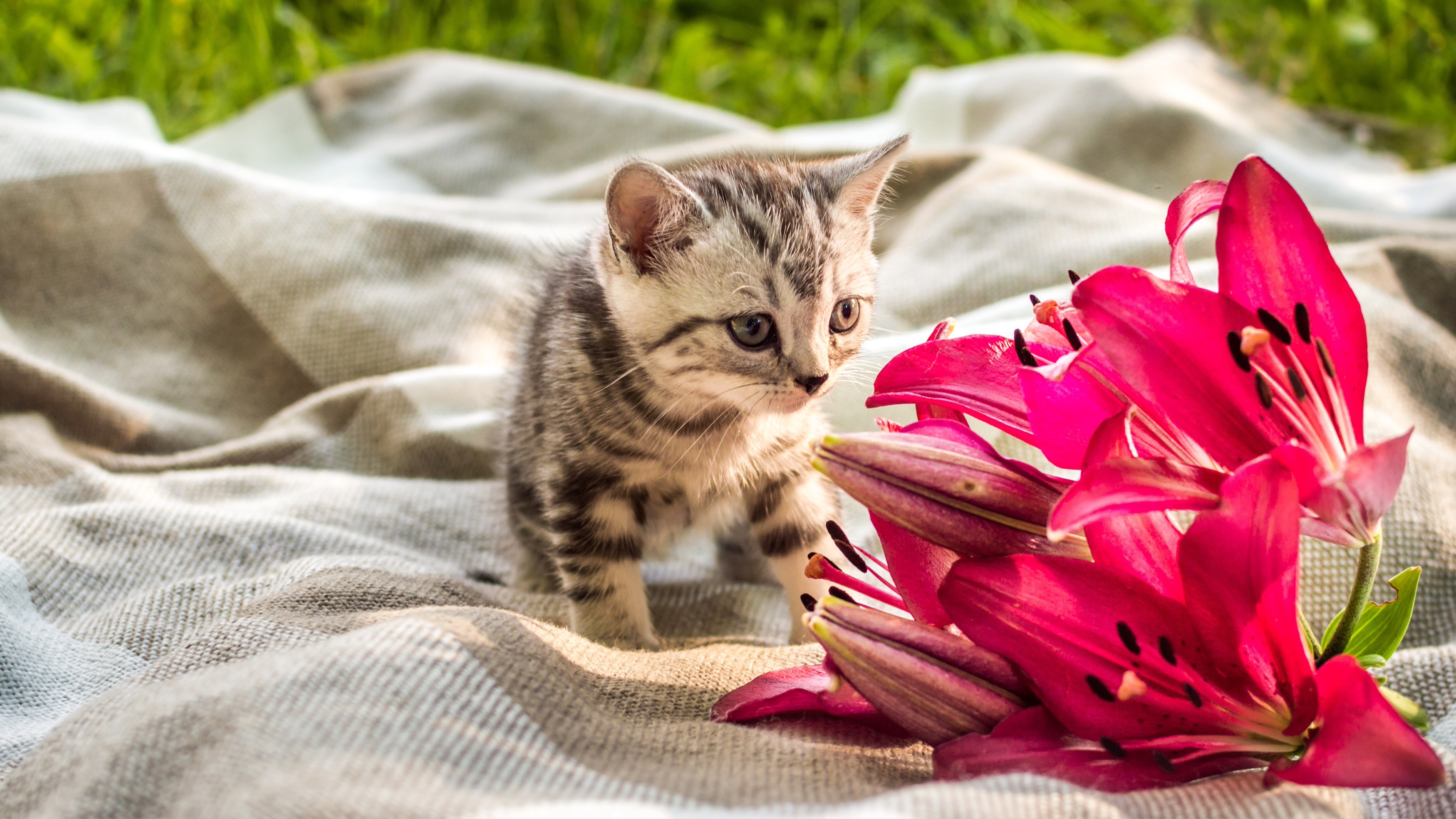
There are a surprising number of house plants and flowers that are toxic to kittens and cats — including Cheese Plant, Rubber Plant, Peace Lily, Lilies, Poinsettia, Ivy, Orchids, Money Tree, Yucca plants, Aloe — just to name a few! If you have a feline friend, we recommend you avoid having these in your home. Check out a guide on how to stop a cat from eating plants if you want to keep your indoor jungle from being chewed.
6. Some human foods can be dangerous
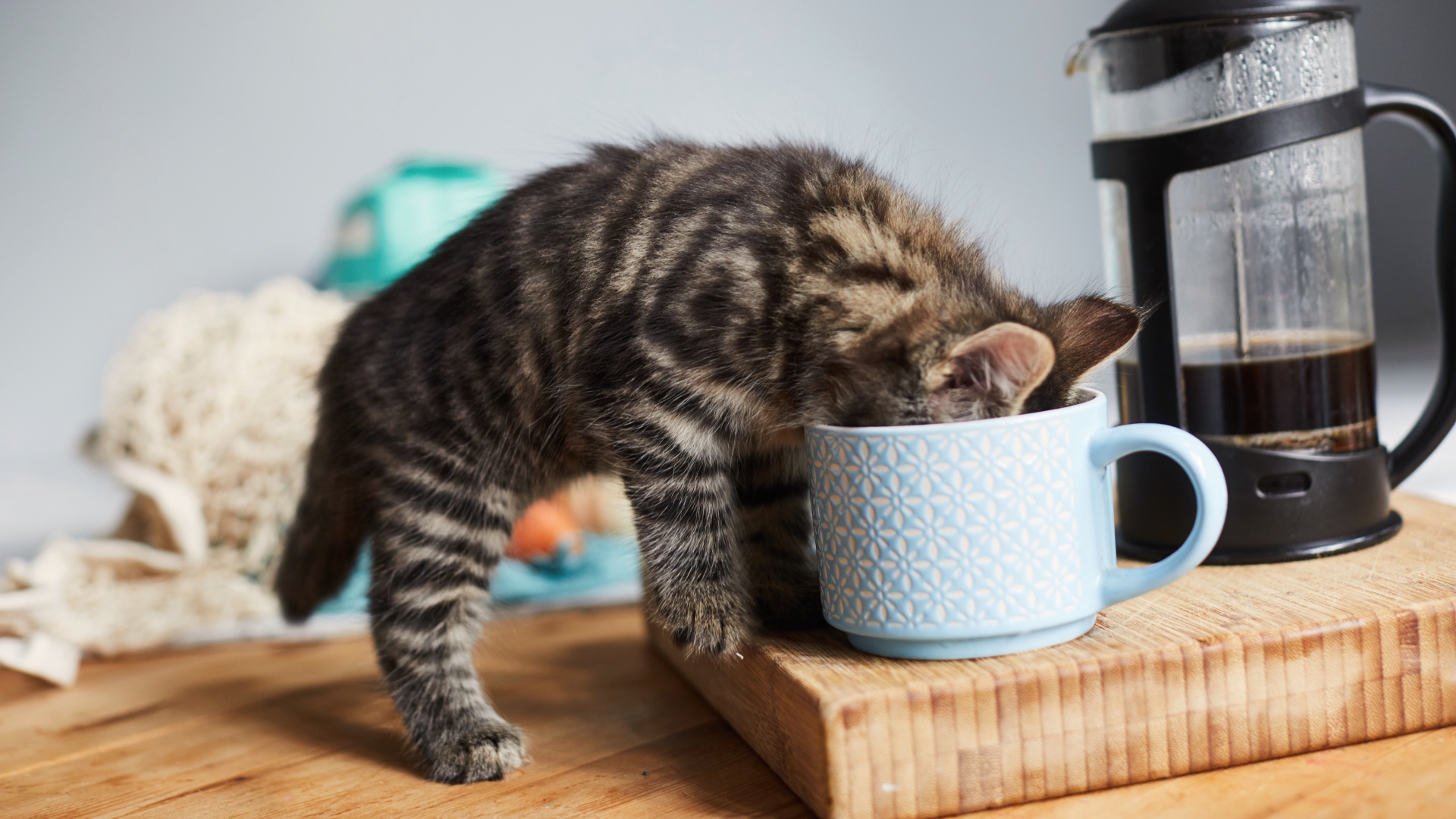
There are certain human foods that cats should never eat. Things like chocolate, coffee, and other caffeine-containing products cause increased heart rate, vomiting, and diarrhea and can even be fatal. Onions and garlic are also highly toxic and can cause severe anemia. If you'd like to treat your kitty once and a while with a table scrap or two, check out a guide to what human food can cats eat that has a list of products that are feline-friendly.
7. Kitten proof your furniture
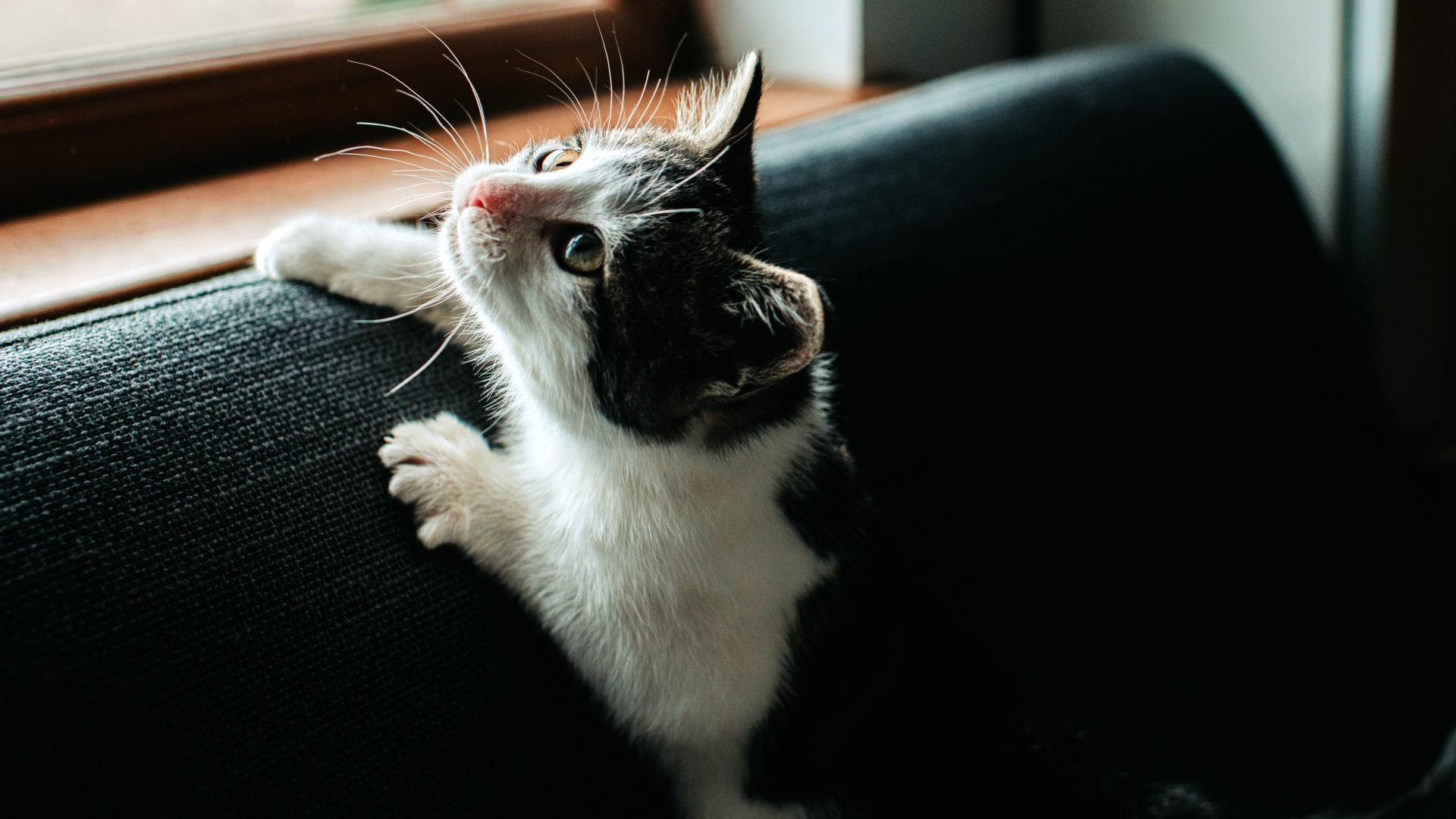
Figuring out how to keep cats from scratching furniture is a problem that pet parents around the world are constantly trying to crack! When it comes to kitten proofing your furniture though, don't just think about the obvious items that they might scratch, you also want to consider things they'll be tempted to climb, like curtains or bookshelves. Invest in a scratching post or one of the best cat trees so that they have a suitable alternative.
8. Hot spots can be unsafe
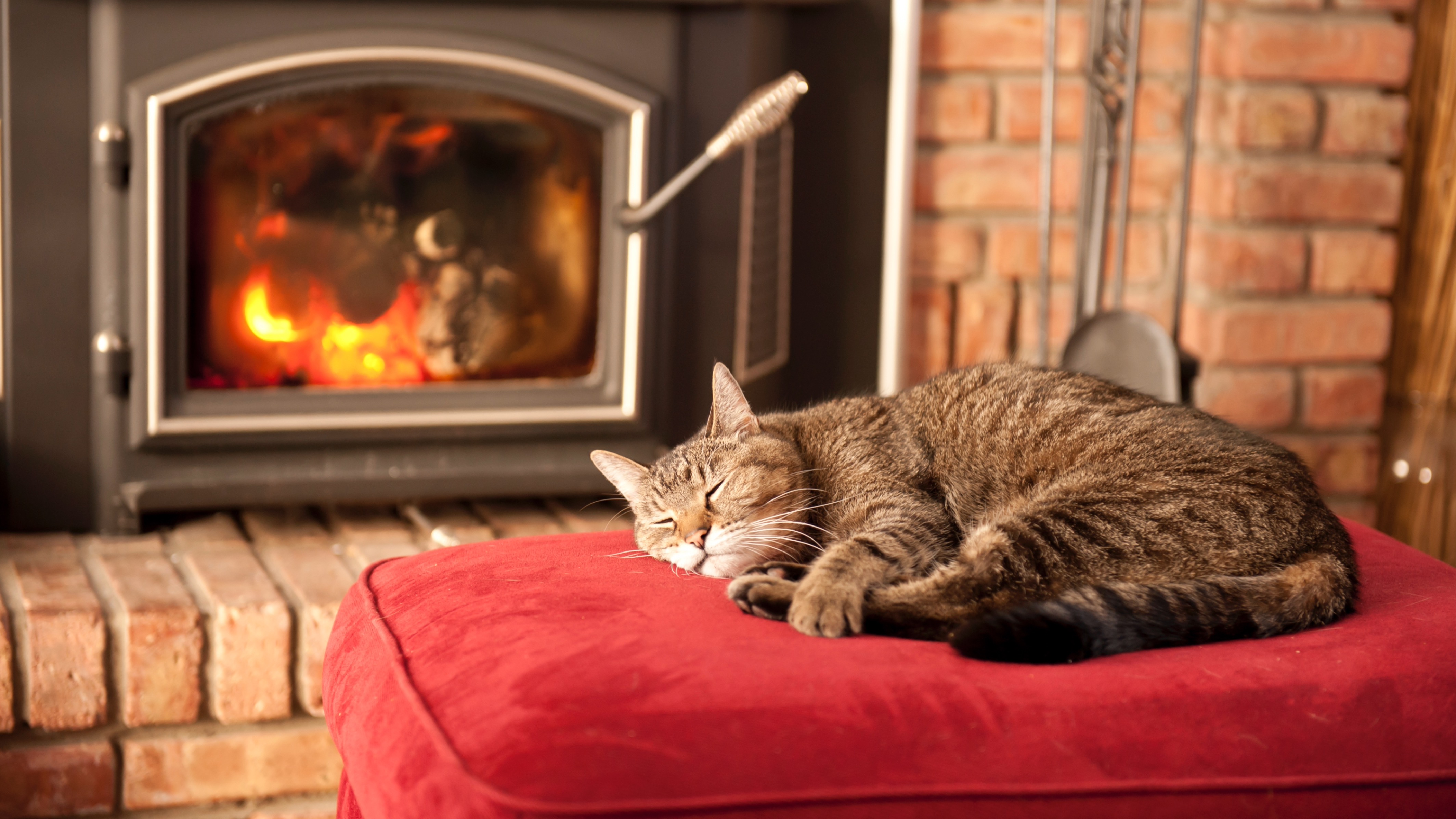
Kittens are inquisitive and they love warm spots, that means that fireplaces and wood stoves have the potential to be viewed as a cozy place to curl up and have a nap. If you have an open fireplace, use a fireplace gate to keep your kitty away from the flames and if you have a closed log burner, ensure you monitor how much time your kitten is spending sprawled out in front of it to prevent them overheating.
9. Keep appliance doors closed
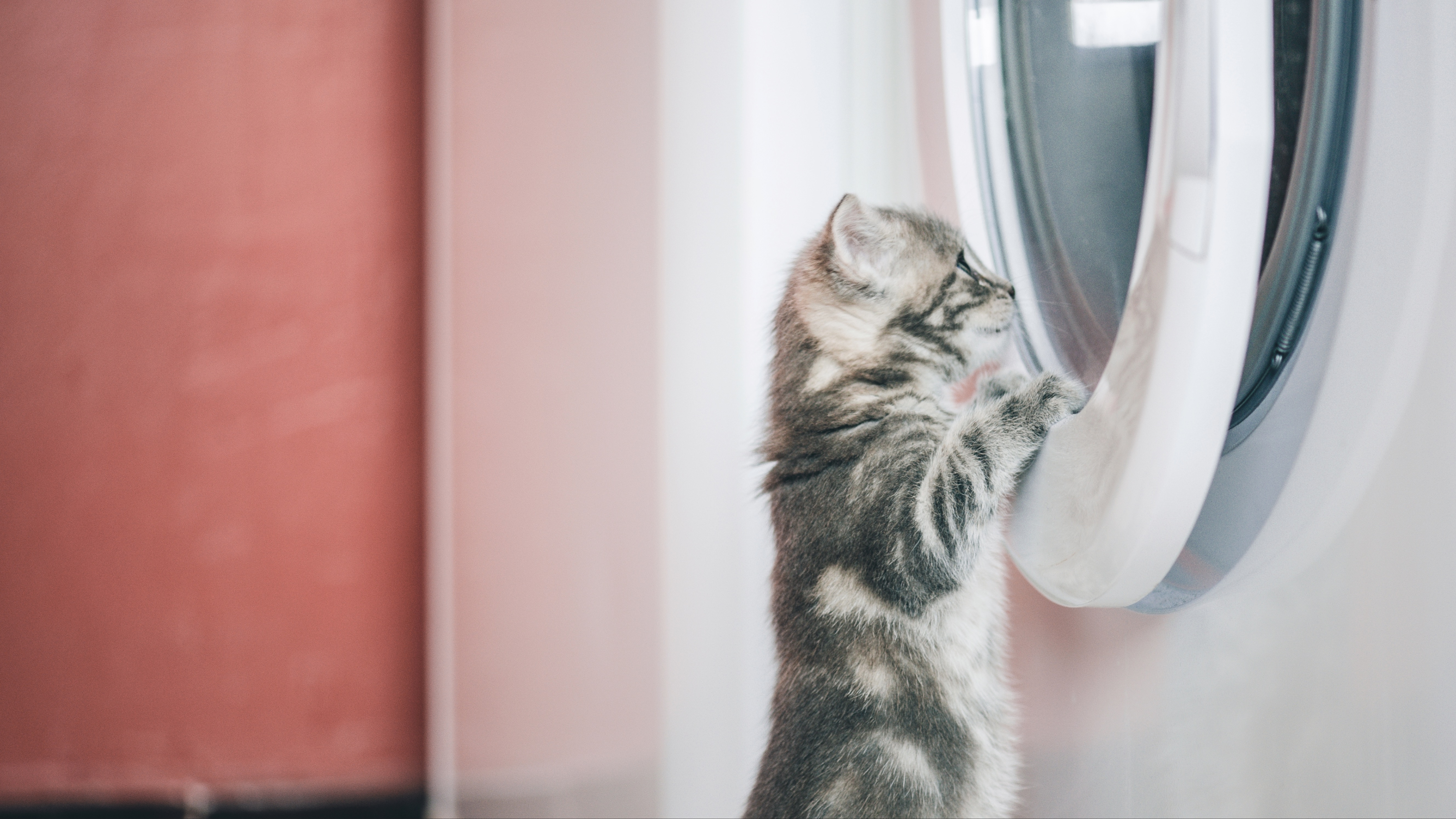
Yes, your kitten may absolutely try to take a nap in your washing machine, tumble dryer, or dishwasher if the opportunity presents itself. For that reason, keep the doors to all household appliances shut and make sure you check them before using them — just in case your little fur friend has decided it's a nice quiet spot to get some shuteye.
10. Secure all your windows
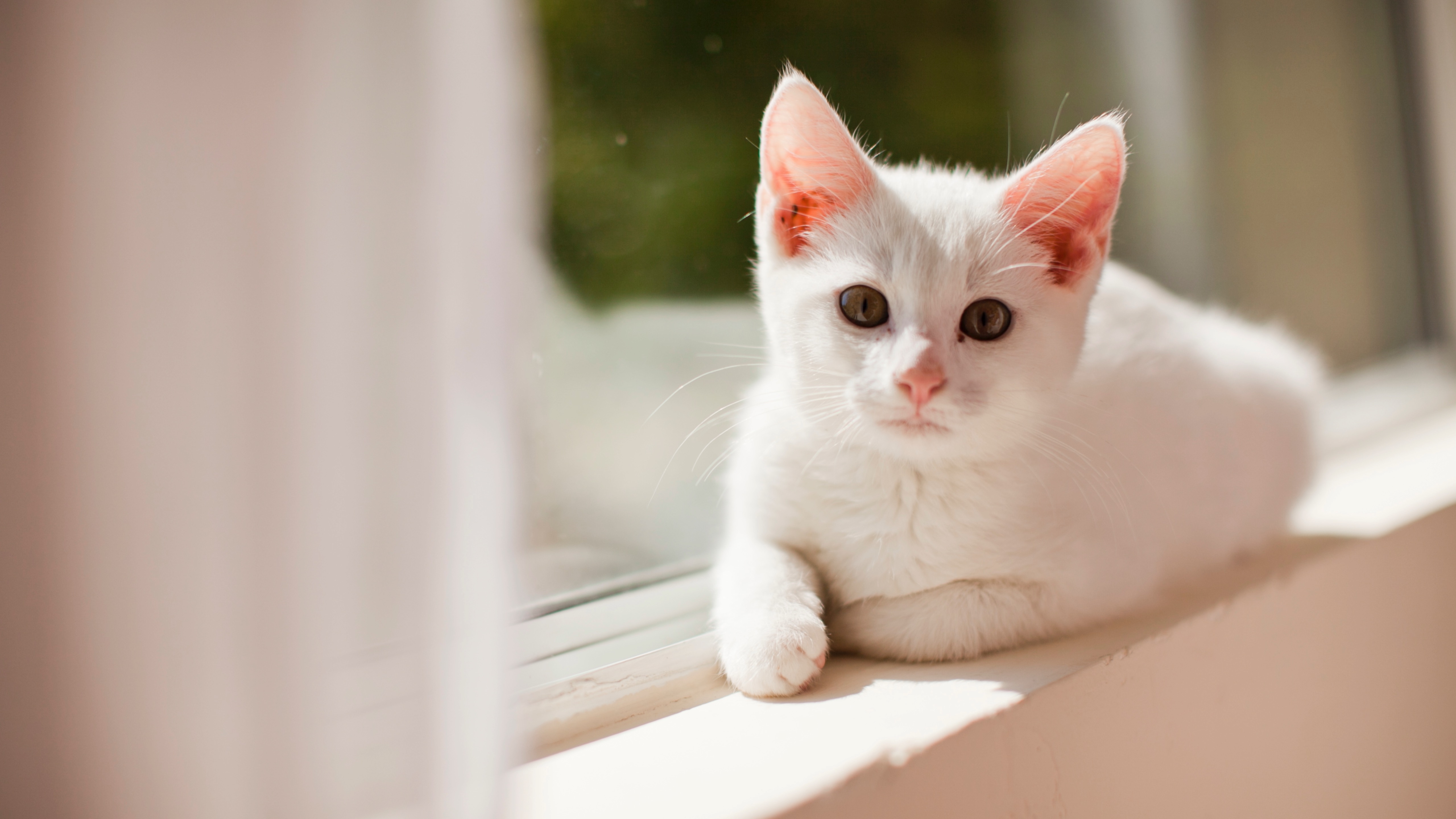
Cats love to explore and they absolutely adore looking out windows and watching the world go by. Plus, they think climbing is the best thing ever, so if a window is open, they'll happily attempt to scale to the top and use the frame as their very own perch. To prevent your kitten from escaping (or injuring themselves), keep windows closed or on a security latch.
11. Use a gate
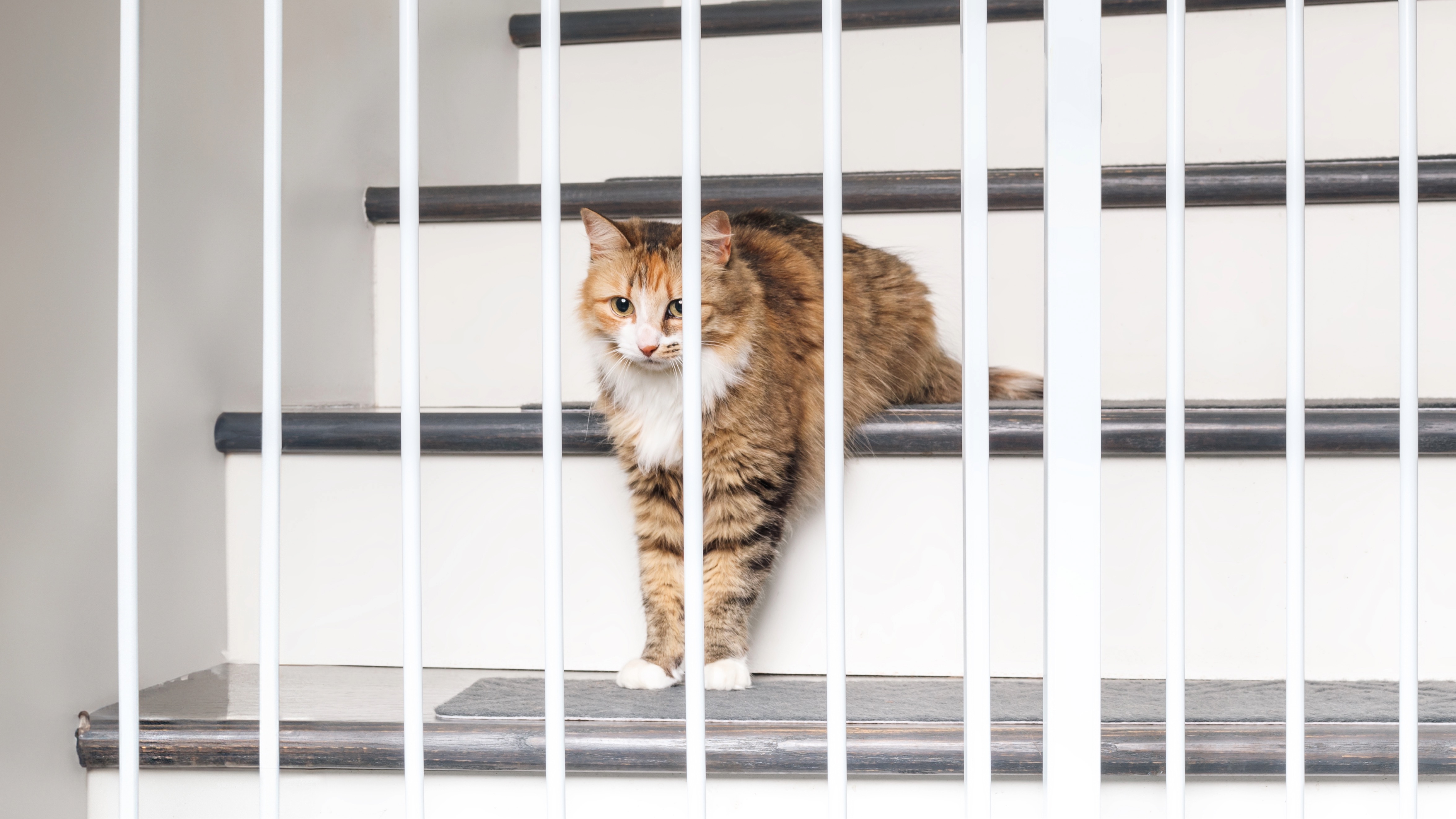
Gates aren't just for babies and toddlers, they're also brilliant for keeping our kittens safe too! Pet gates create a barrier that can help keep your kitten away from potential hazards, like small spaces they could get stuck in, kitchen appliances, and loose wires and cords.
12. Make sure garbage cans have a lid
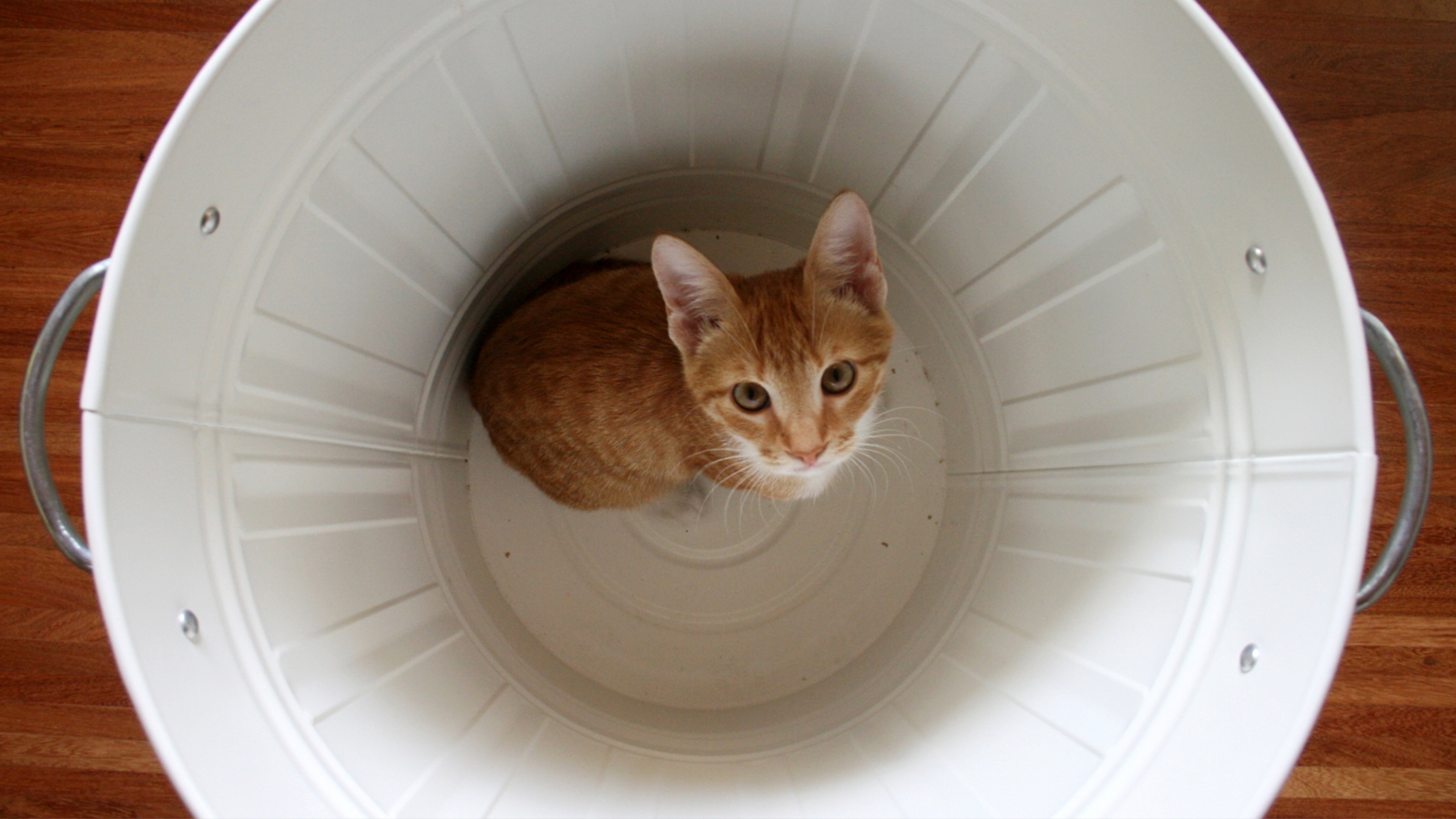
It's really important to keep all the trash cans in your home covered — this includes the kitchen and the bathroom. Kittens and cats will often try to investigate things they shouldn't and the last thing you want is them eating food that's toxic or swallowing a piece of dental floss.
13. Keep any sewing supplies out of reach
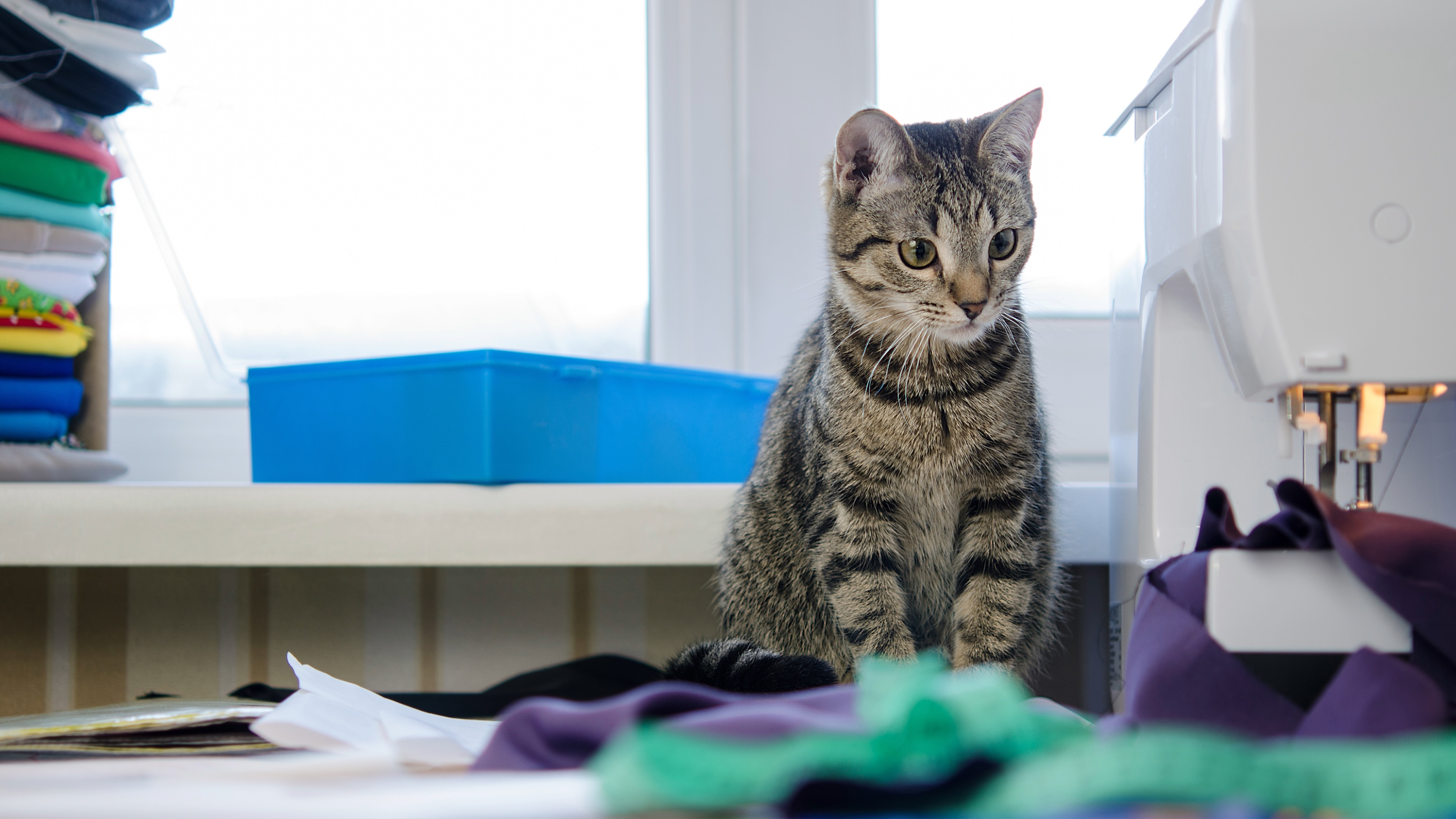
Sewing may seem like a harmless hobby, but if you have a kitten in the house, it poses some very real risks. Thread and buttons can easily be ingested and cause blockages in the stomach and pins and needles can be stood on or damage the mouth if chewed. Ensure you keep all of these things well out of reach of your kitten's paws.
14. Always pick up rubber bands and hair ties
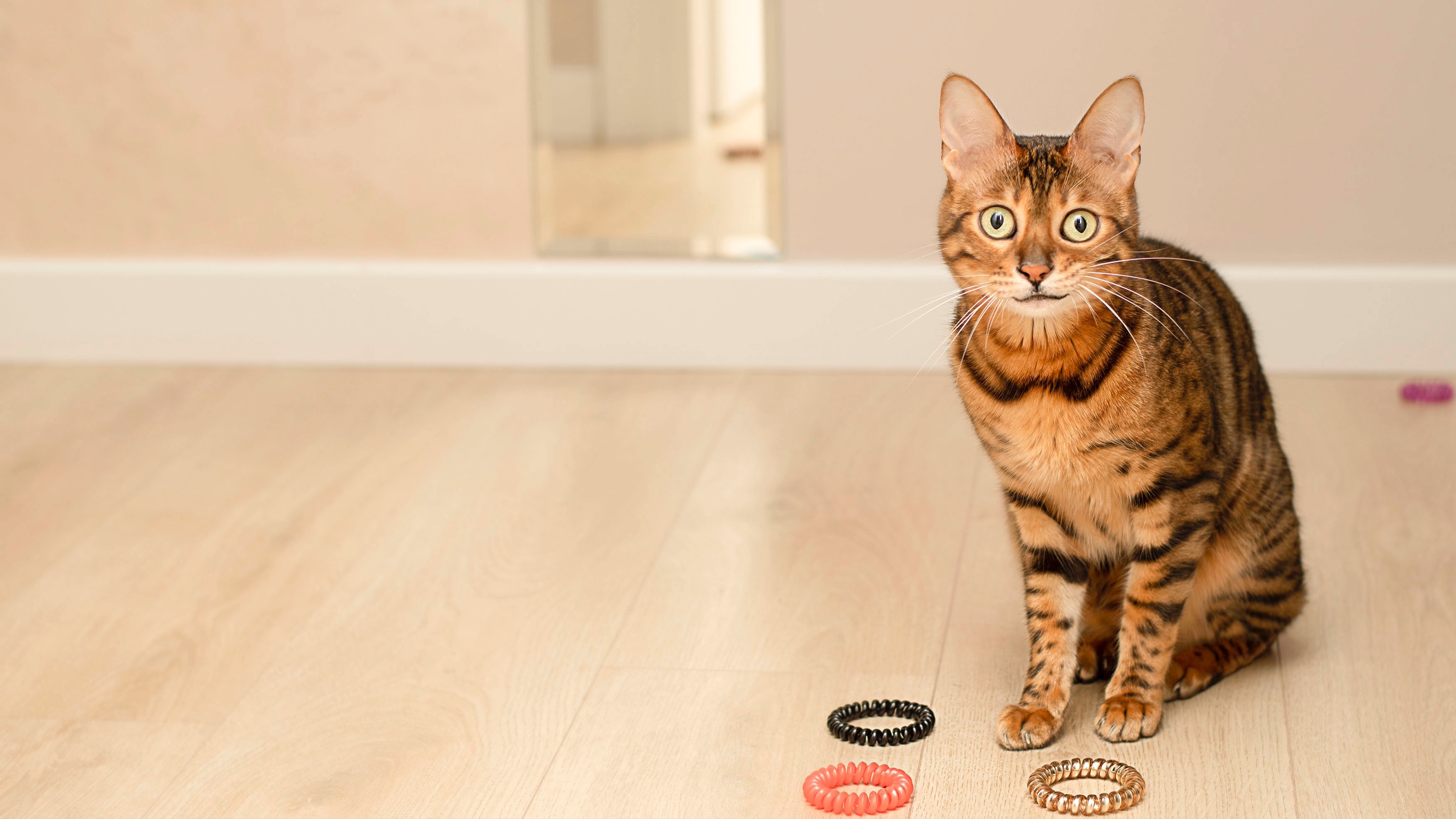
Cats love rubber bands and hair ties because they can so easily be picked up with their paws and tossed about. However, these items have the potential to be dangerous if swallowed so it's best to keep them locked in a drawer, well out of reach of your curious kitten.
15. Put away plastic bags
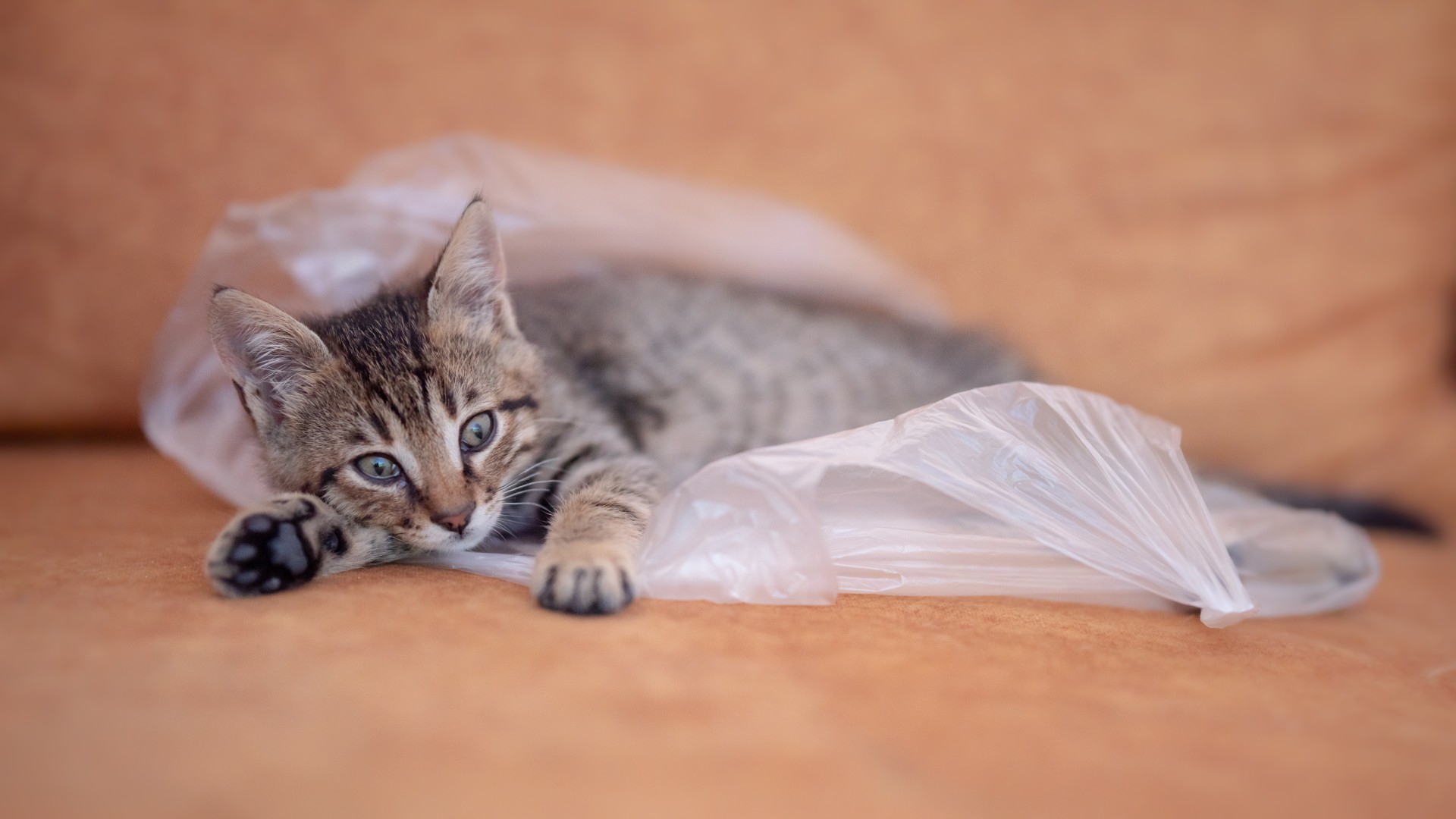
Many kittens are very drawn to plastic bags because of the sound they make when pounced on. But plastic bags are one of the most dangerous items to leave lying around because if your kitten gets inside one, they could easily suffocate. They may also chew and swallow pieces of plastic, which will likely require a trip to the vet, so keep them well out of reach.
16. Check for Styrofoam
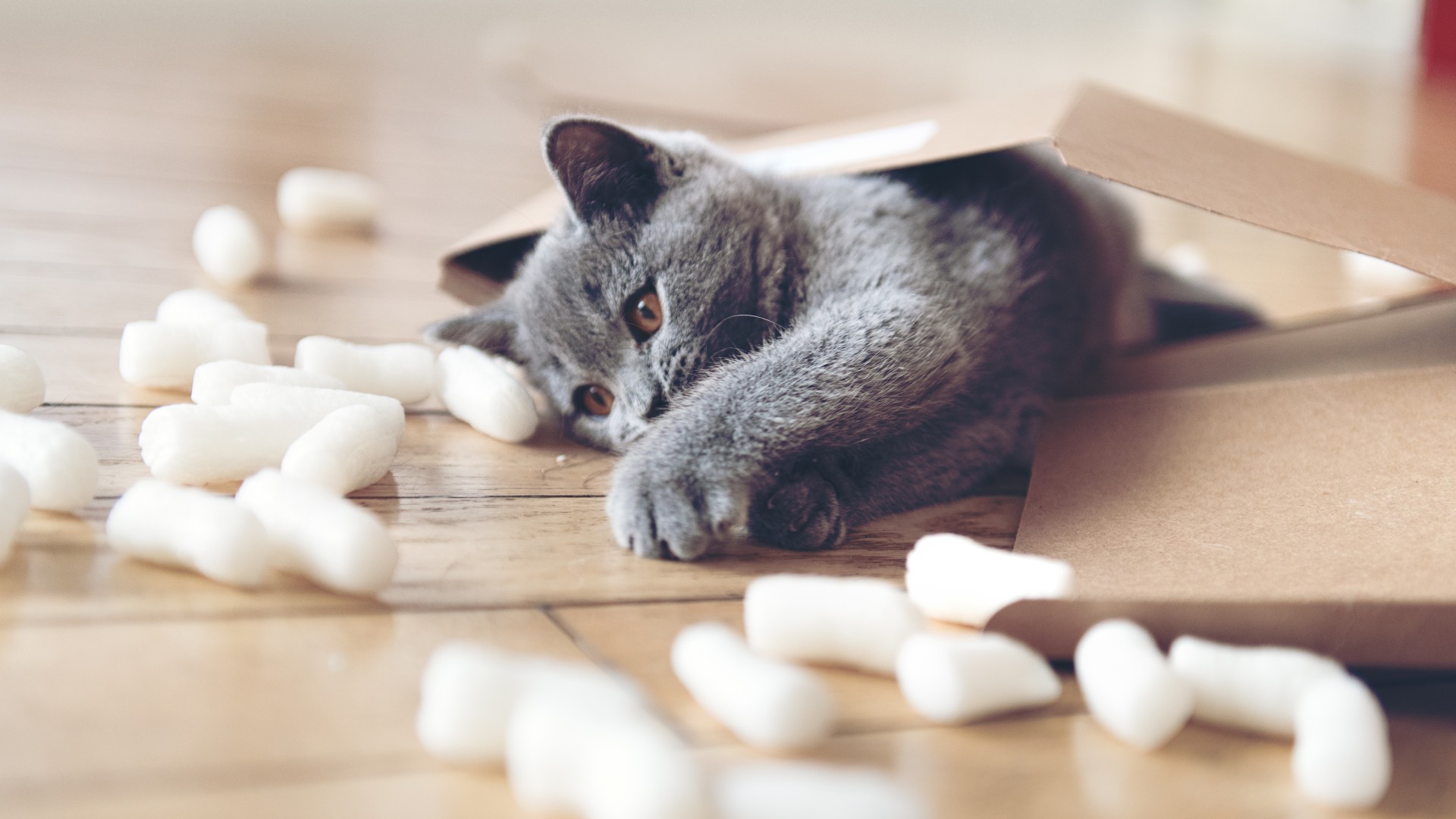
With online shopping so convenient these days, many of us go through periods of having a steady stream of boxes turning up at our house. Depending on the item you've ordered, these boxes may contain Styrofoam or packing "peanuts", which are designed to keep your items from being damaged in transit. Unfortunately, these aren't safe for kittens. If ingested they have the potential to be a choking hazard, and if they do make it down the throat and into the stomach, they can cause blockages.
17. Use kitten-safe holiday decorations
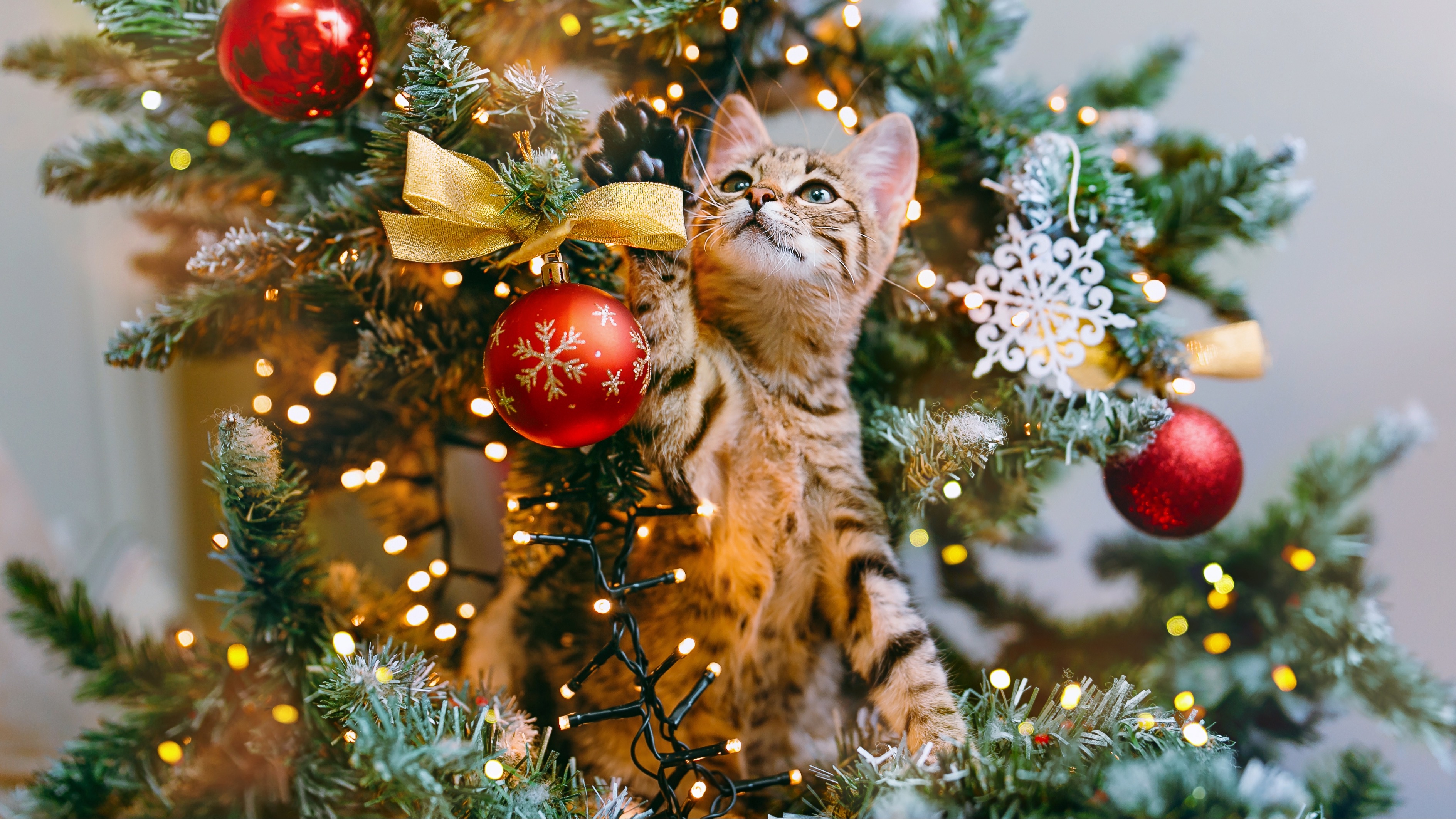
Christmas can be such a beautiful time of year with all those lights and decorations, but there are potential hazards you want to be aware of. Things like tinsel, glass ornaments, holly, and mistletoe can all be dangerous, as can wrapping paper, ribbons, and lights, so be sure to keep these out of reach and if need be, put a pet gate around your Christmas tree.
18. Secure bookshelves to the wall
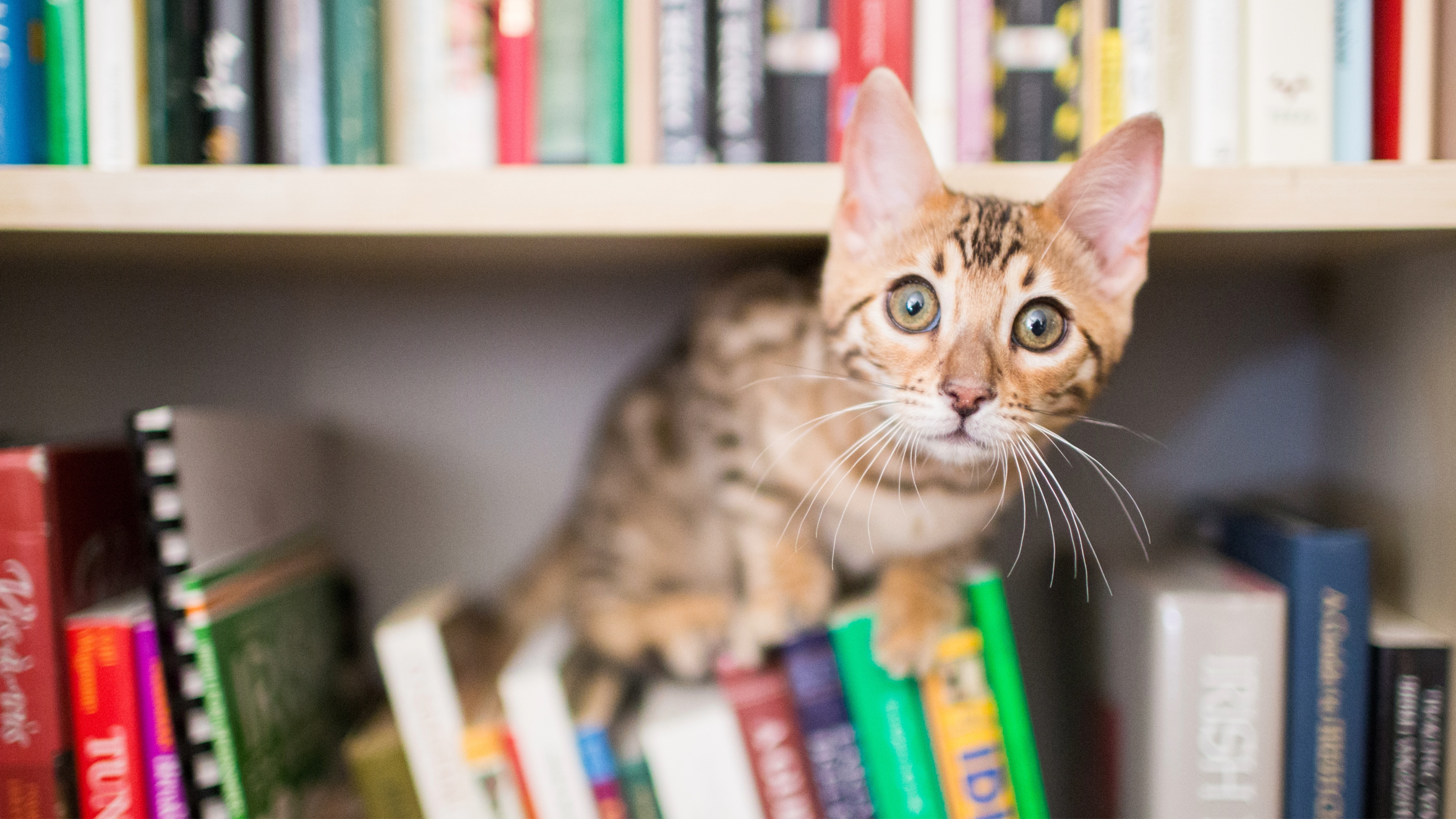
If you have a bookshelf, we highly recommend you secure it to a wall. Cats are natural-born climbers and love to be up high, so to stop tall furniture from toppling over, secure it using brackets and zip ties.
19. Office and craft supplies can be dangerous
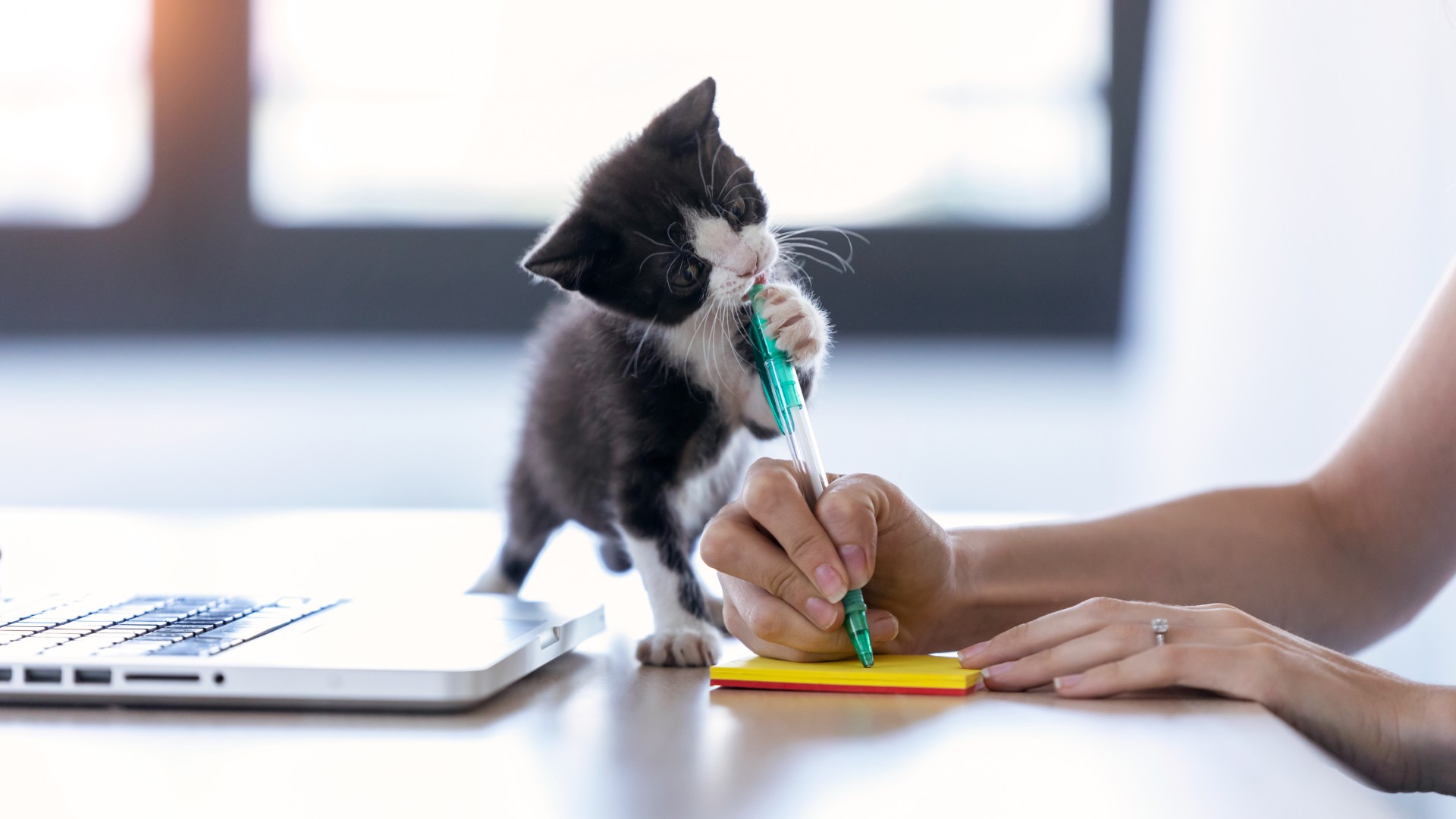
Your kitten will be in heaven if it walks into your home office or craft room. We mean, what's not to like? Rubber bands, pens and pencils, paper clips, push pins, balls of wool, beads of every color, glitter, and all sorts of other sparkly, shiny, and irresistible objects just waiting to be explored. All of these can cause internal damage if swallowed, so keep the doors to these rooms closed when you're not in there and all dangerous objects secured in containers or drawers.
20. Tie up curtain cords
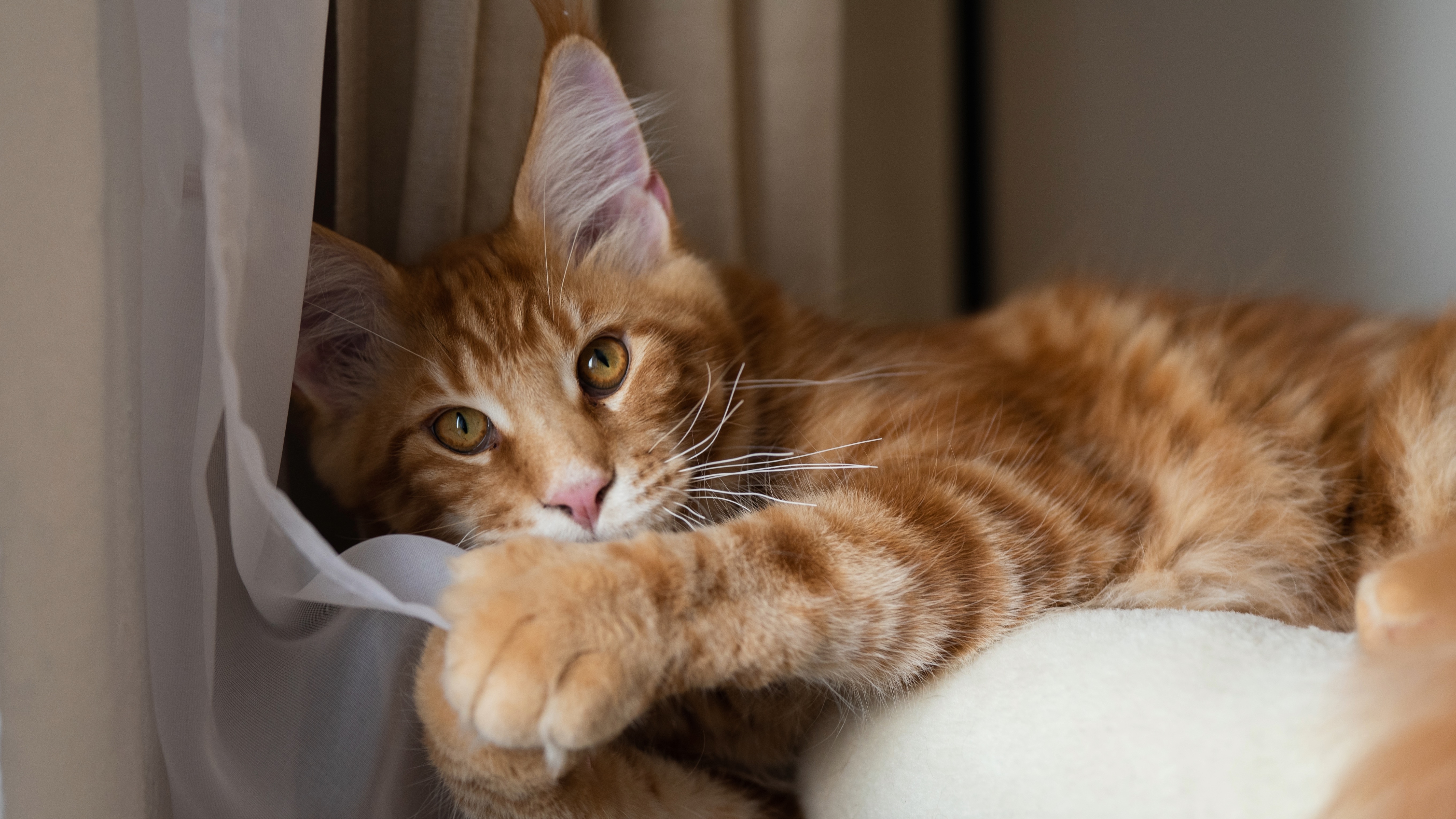
There are few things more irresistible to a young kitten than a dangling curtain cord — they're just hanging there waiting to be pawed, nibbled on, and possibly even climbed! However, cords have the potential to get wrapped around your kitten's neck, so always make sure they're tied back and secured.
21. Put away breakables
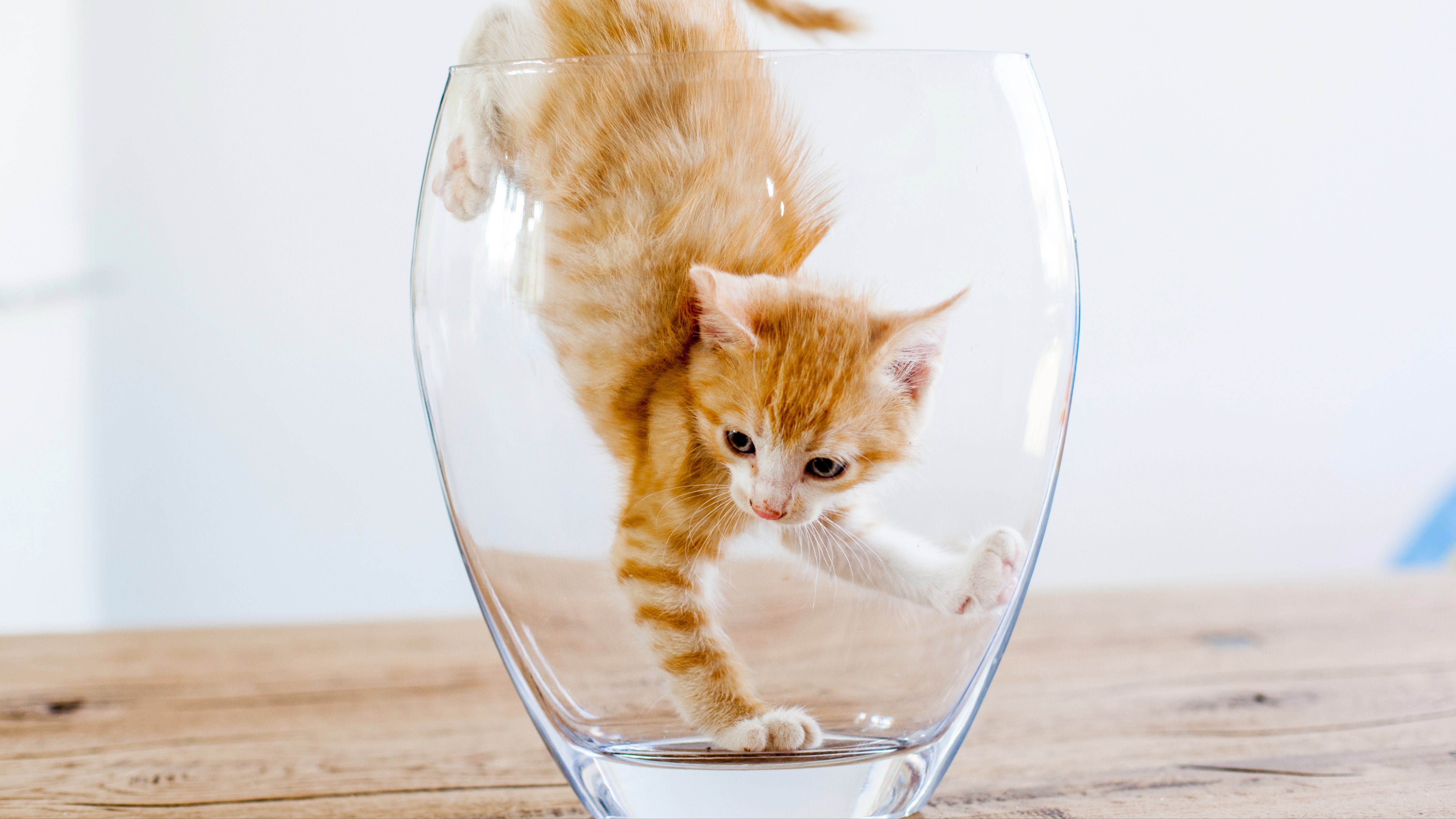
Kittens are curious little creatures and they love exploring, which means they tend to get into absolutely everything! If you have precious, breakable items in your home (on your bookshelf, dresser, or coffee table), consider relocating these to a space where your little fur friend can't access them.
22. Keep candles out of reach
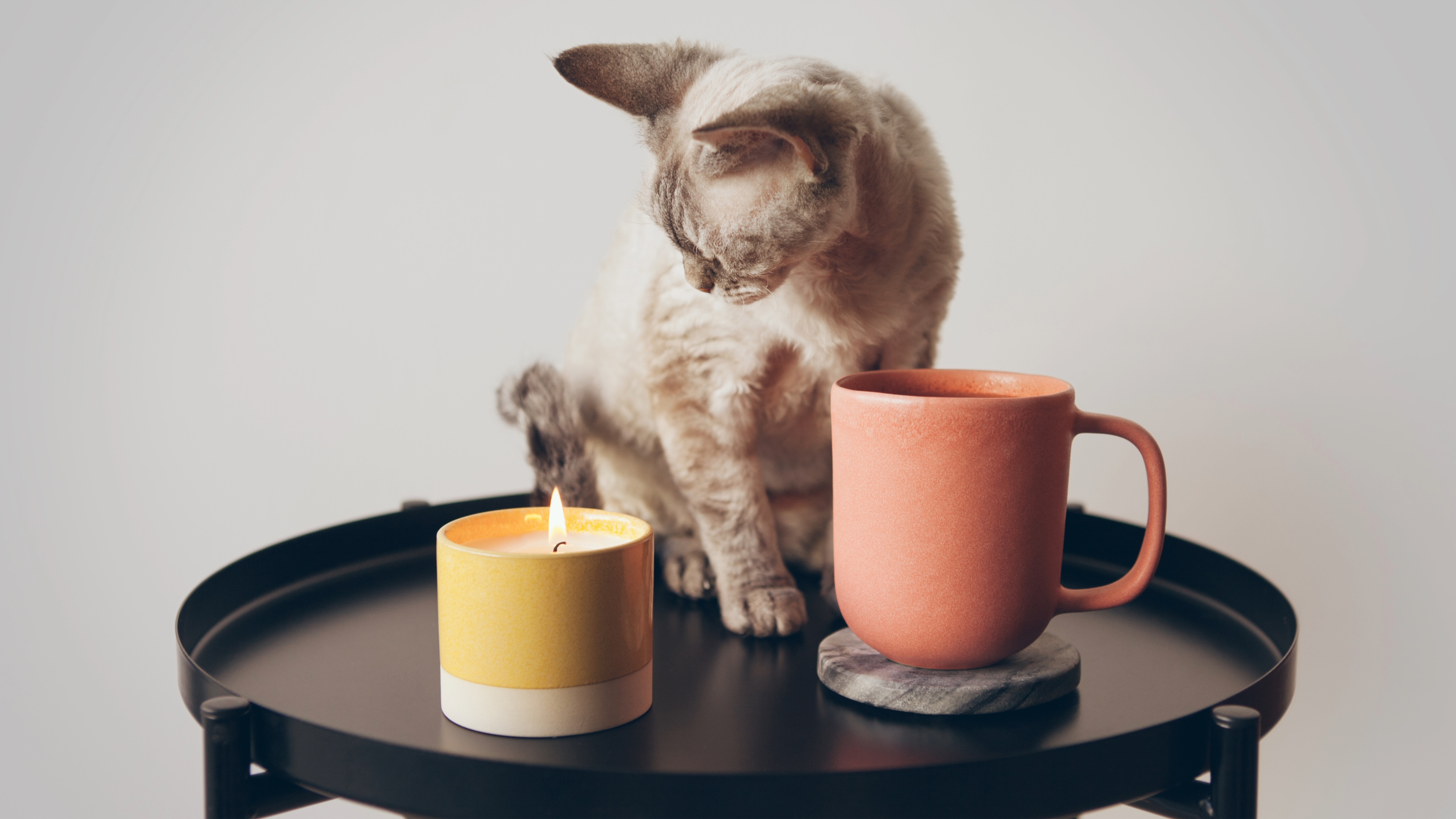
There are so many potential hazards around the home, but because we're so used to using certain items with care, we don't always think about them being dangerous to inquisitive paws and whiskers. Candles are a great example. Many cats find flames super captivating and will decide that the flickering light is well worth investigating. Always supervise your kitten around candles and other heat sources to prevent them from burning themselves.
23. Make sure your medication is inaccessible
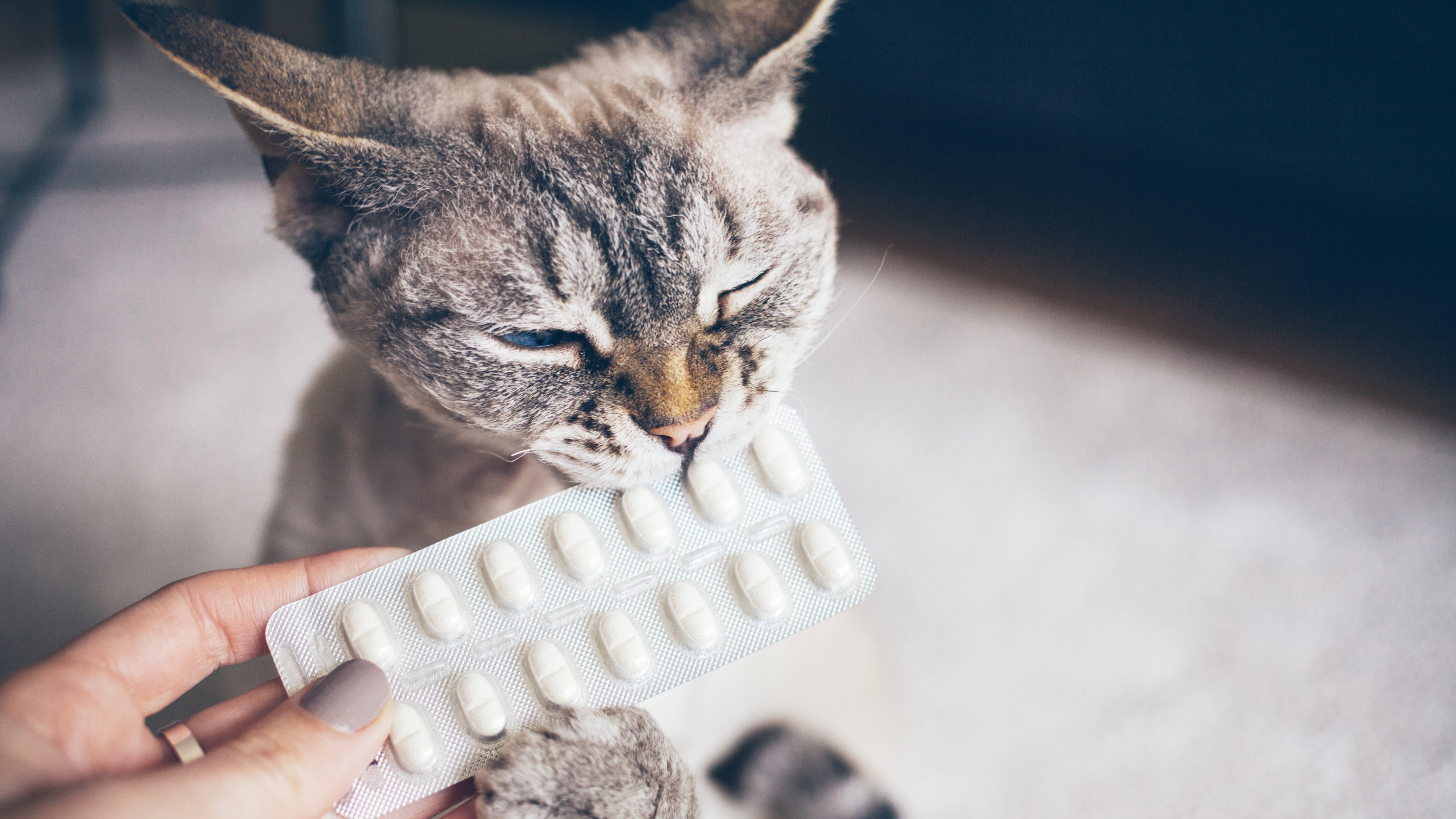
Just like with young children, medications designed for adult humans can be lethal for kittens. Always store all prescription drugs (and all-natural remedies too) in a secure cupboard where your kitten can't gain access to them.
24. Take care when using essential oils
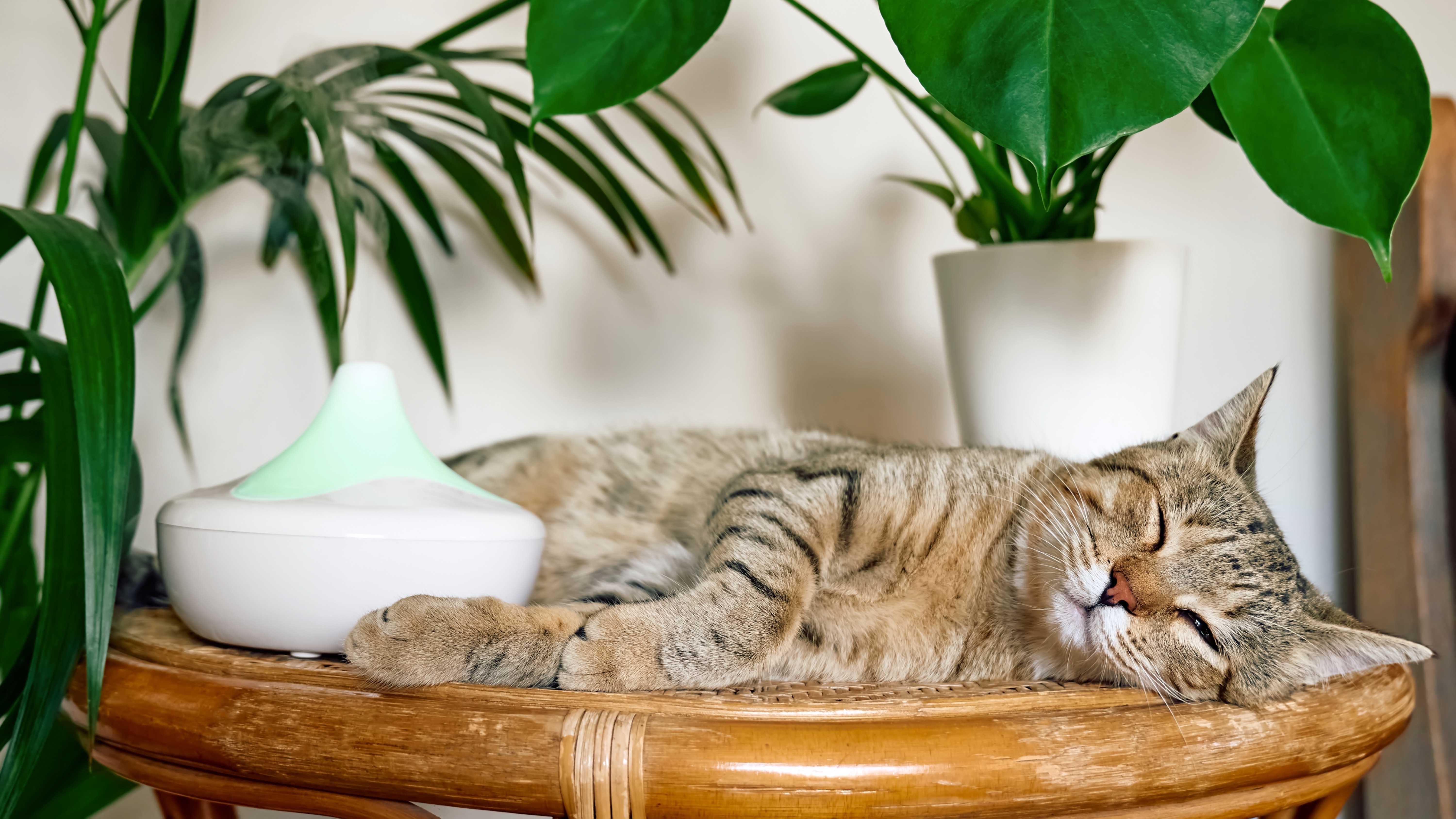
Essential oils are all the rage, but are they safe for cats and kittens? While they can be very calming for humans, essential oils can cause harm to our feline friends. The most toxic ones include cinnamon oil, citrus oil, lavender oil, peppermint oil, tea tree oil, and clove oil, just to name a few. Coming into contact with essential oils (whether through ingesting them, getting them on their skin, or inhaling them can cause organ damage and even death. If you like using essential oils at home, keep your kitten out of the room and always wash your hands thoroughly if you have any of the oil on your skin.
25. Get all of your family on the same page

When it comes to kitten-proofing your home, one of the most important things you can do to set yourself up for success is to ensure everyone in your family is on the same page. That means being super consistent with training your kitten and the rules they're expected to follow. If one person says it's okay to scratch the furniture or jump on the kitchen countertops and five minutes later someone else tells your kitten off, they're going to get very confused about what they are and aren't allowed to do. Make sure everyone is singing from the same song sheet and you'll find your kitten learns the ropes a lot quicker.
26. Kitten proof your balcony
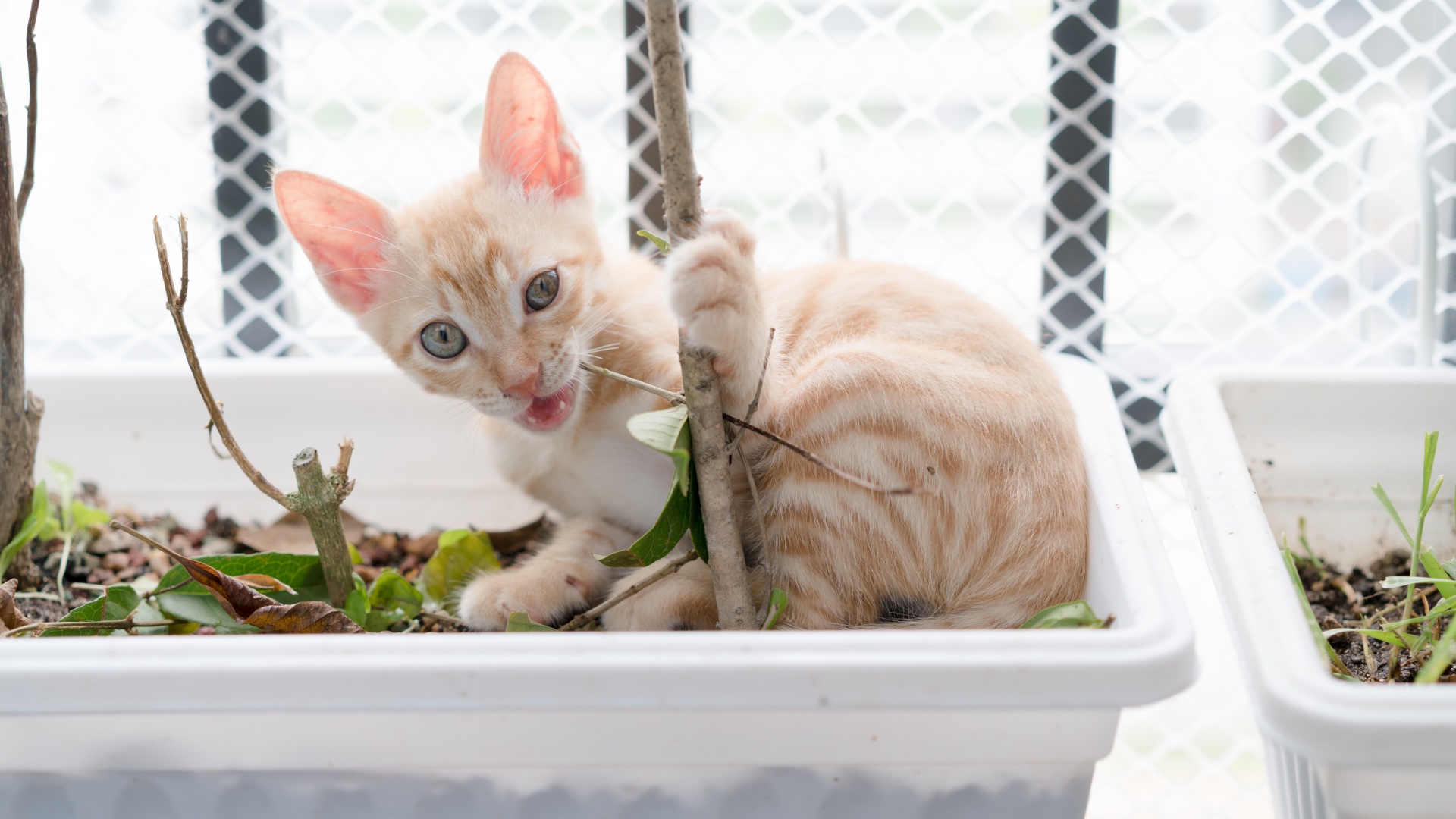
If you live in an apartment and have a balcony, you'll want to make sure it's a safe and enjoyable space for your kitten. Remove any toxic plants, use cat nets to make sure your little fur friend can't escape, create some shade, and furnish your balcony with a cat tree to give your kitten somewhere to sprawl out and relax.
27. Keep the doors to your garage closed
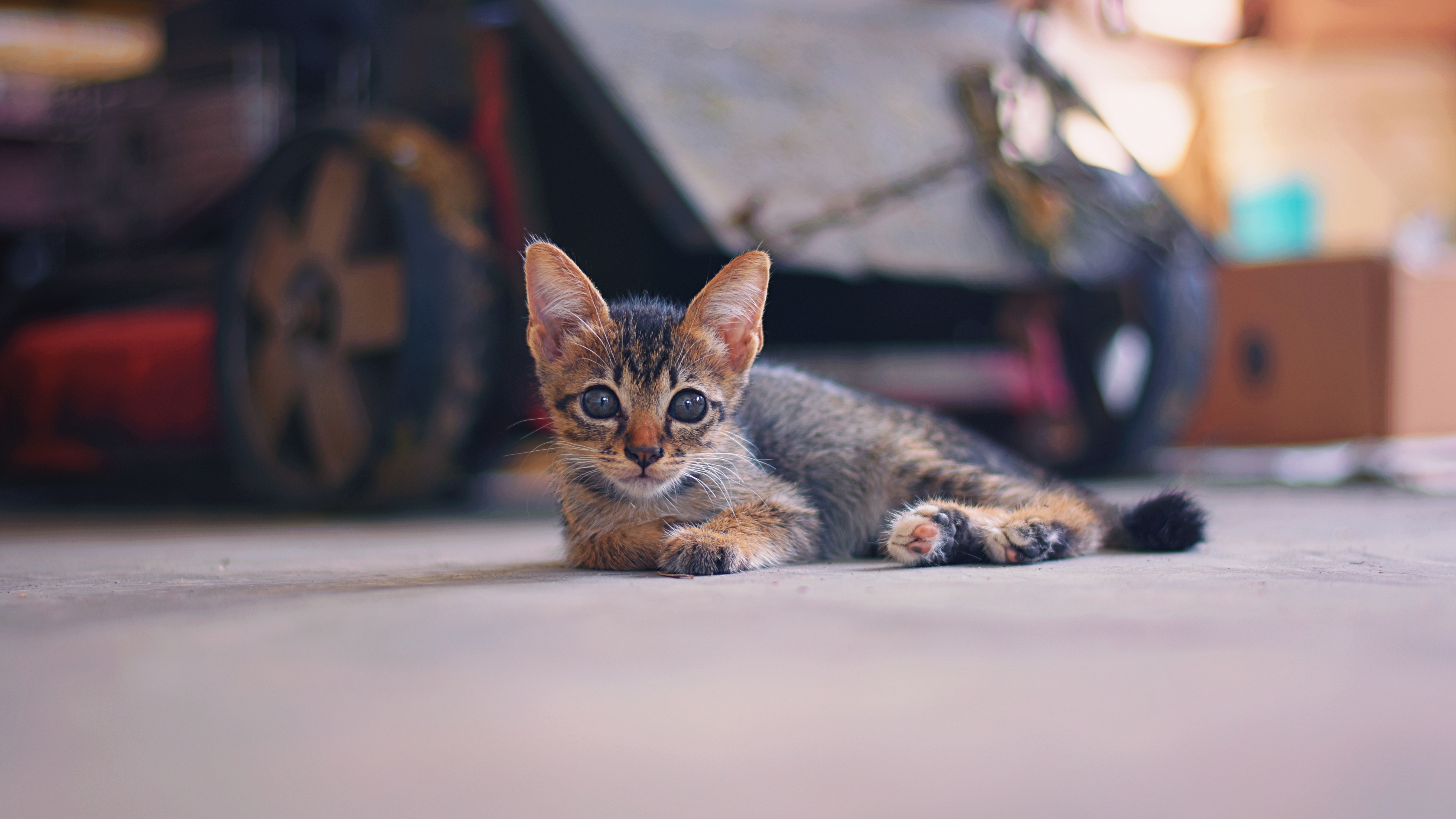
Inquisitive kittens can easily get stuck in garages if they follow you in and you leave and close the door without realizing they're in there. We also tend to store a lot of toxic products in the garage — anti-freeze is particularly dangerous because it smells very sweet and yet it's deadly if ingested. Keep your garage door locked at all times and always clean up spills to ensure your kitten stays safe.
28. Use animal-safe pest control
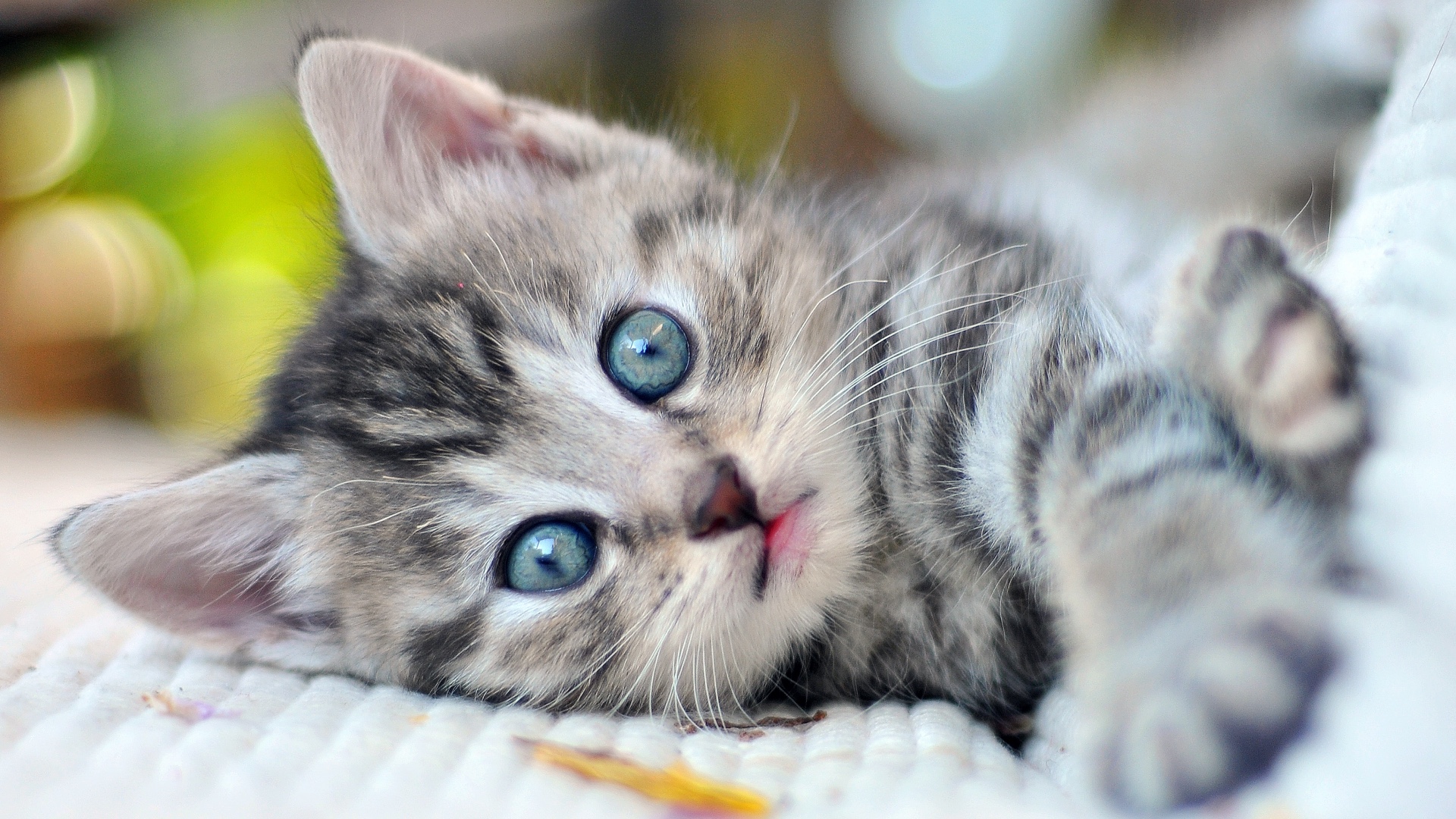
Many commercial pest-control products are lethal to kittens, so you want to make sure you're choosing animal-safe methods for treating roaches, rodents, and ants. Mothballs are also highly toxic if sniffed or eaten, so if you're using these in your house, keep them in cupboards and drawers that your kitten can't gain access to.
29. If your kitten will be allowed outdoors, make sure your yard is free of hazardous materials
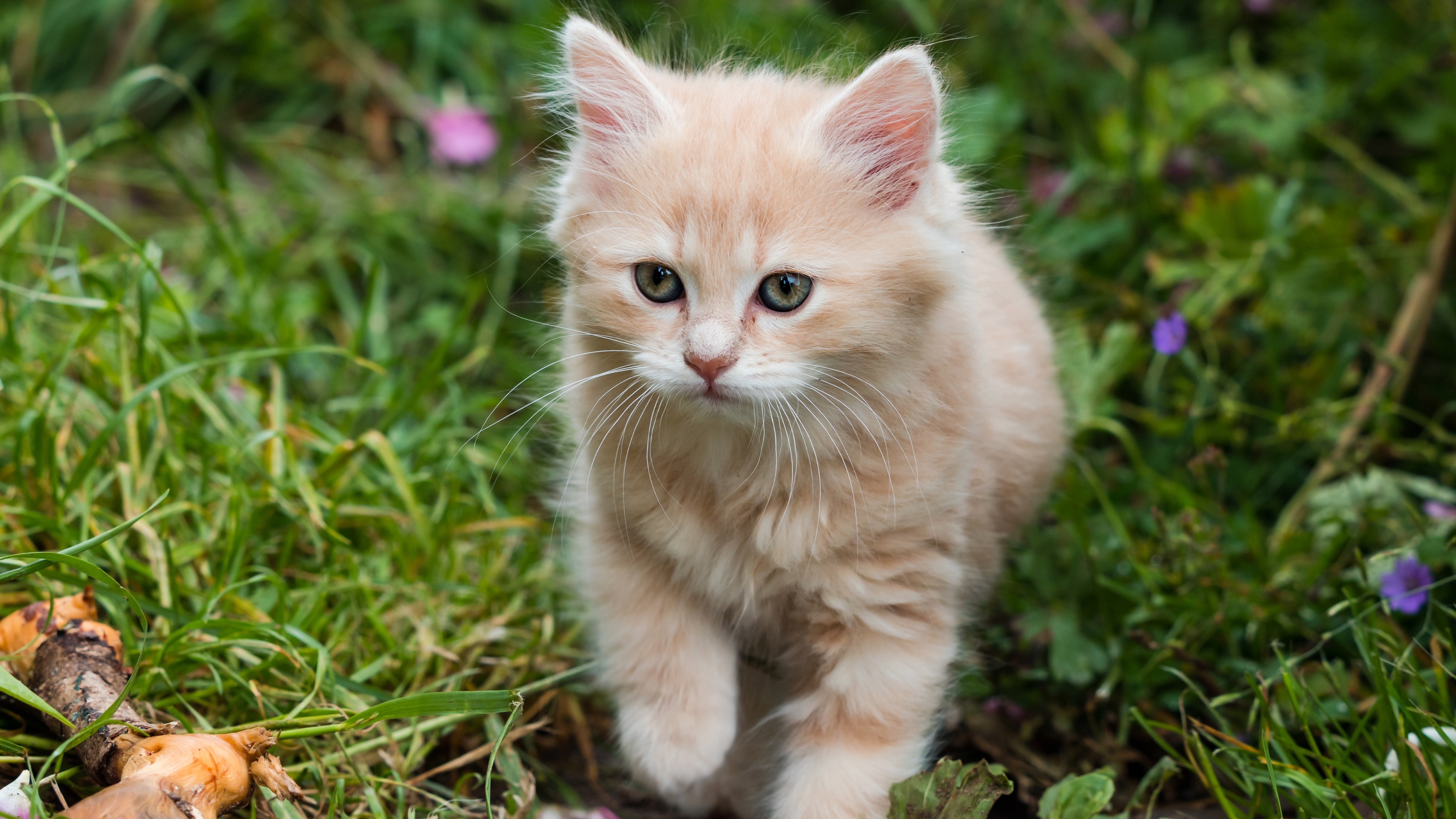
If you've decided that your kitten will be allowed outdoors and you have a garden, you're going to want to kitten-proof this as well. Make sure your yard is free of snail pellets, rodent traps, chemical herbicides, and poisonous plants, or consider investing in one of the best outdoor cat enclosures — these are designed to give your kitten access to nature but in a safe and secure space that they can't escape from.
30. Purchase and install kitten-friendly equipment
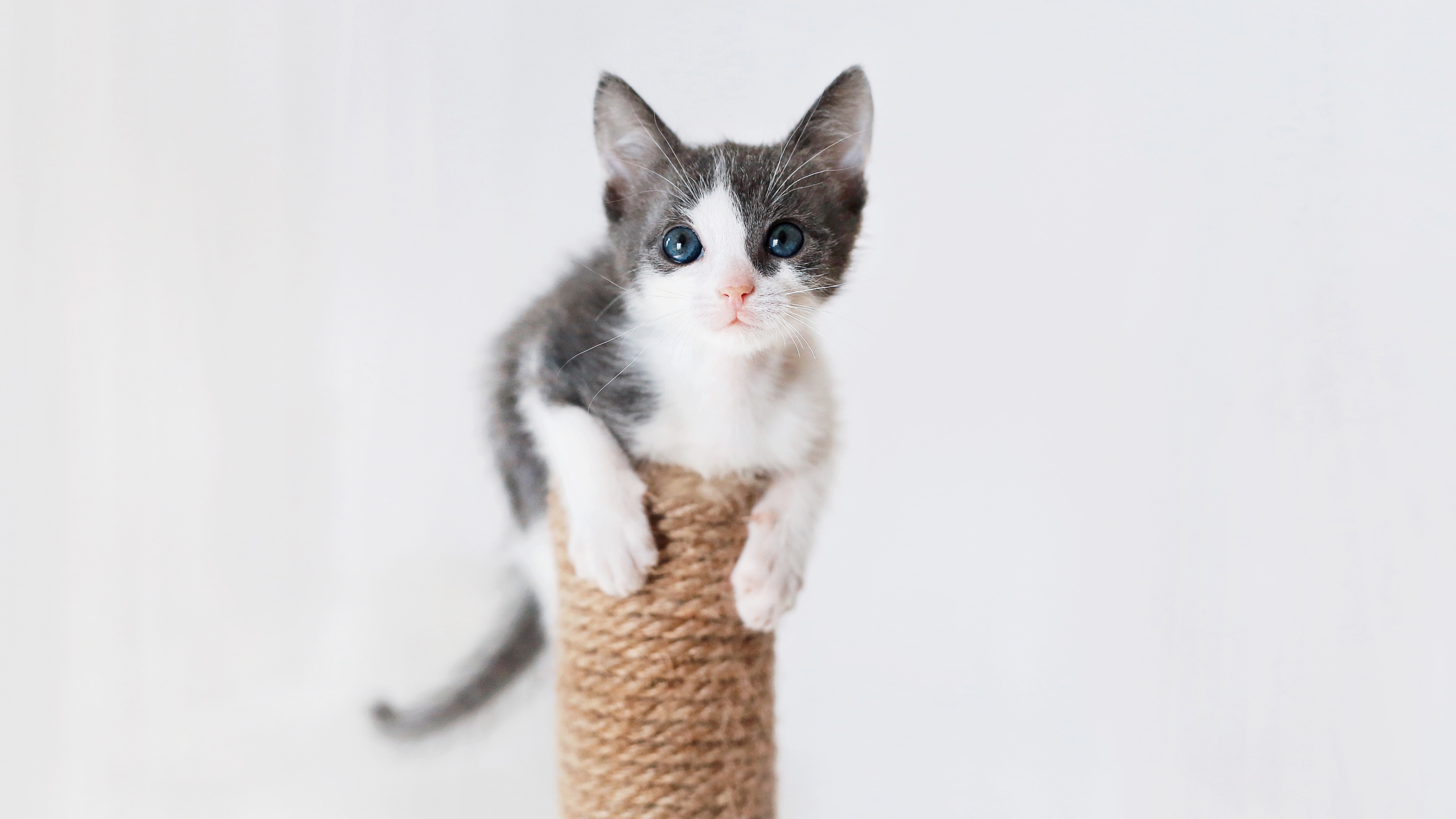
One effective way to kitten-proof your home is to invest in lots of kitten-friendly equipment. Think of the best cat bed that they can curl up in when they need a snooze, one of the best cat scratching posts that offers them a good stretch and a tall perch that they can use to survey their kingdom. And one of the best parts about these items is you don’t have to buy them separately! Cat trees combine all of these elements and are wonderful for keeping cats of all ages and stages entertained and occupied.
31. Offer plenty of mental and physical enrichment
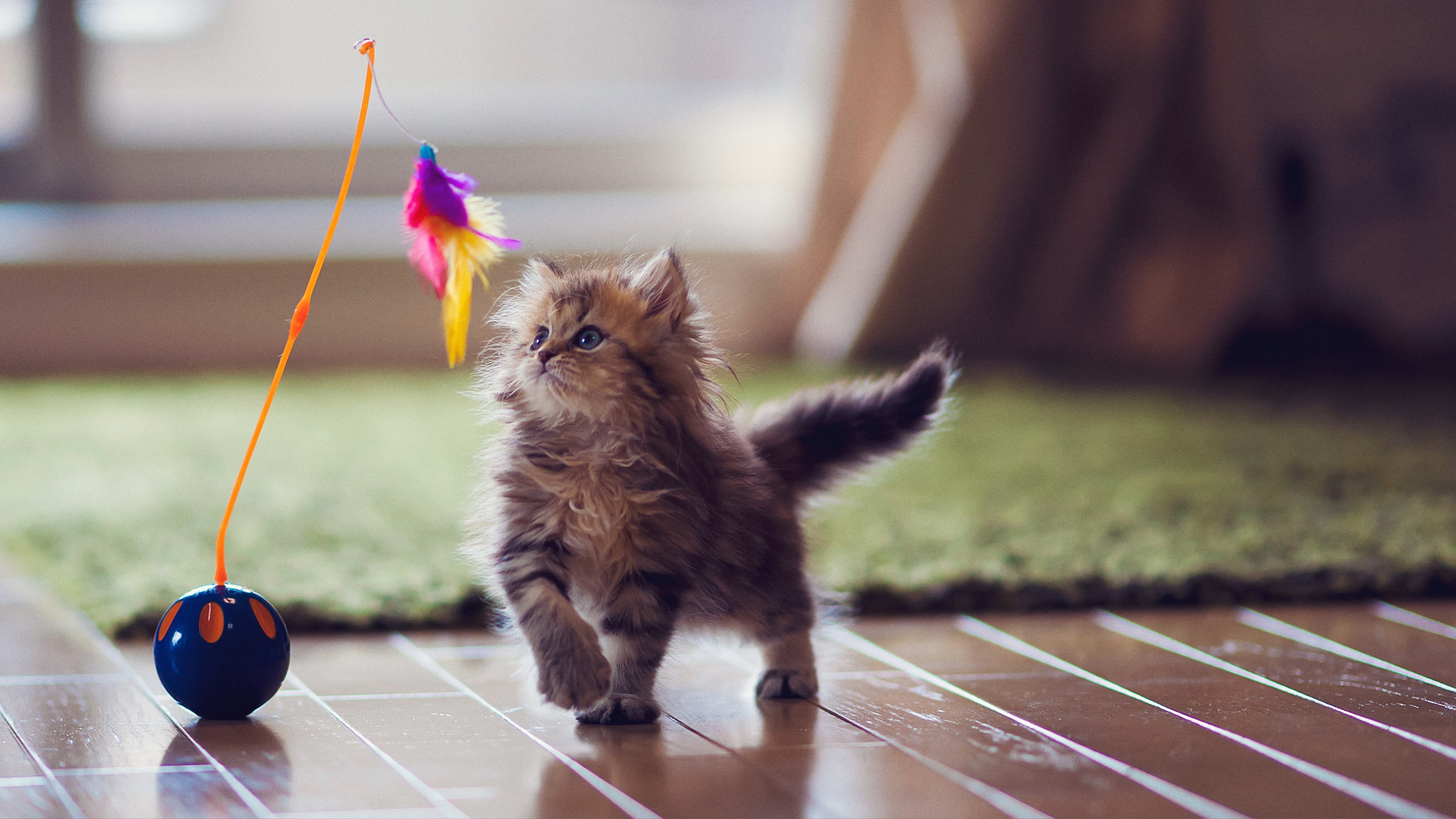
One of the best ways to occupy curious minds and active bodies is to invest in plenty of kitten-friendly equipment. The best interactive cat toys and puzzle feeders in particular offer a lot of mental and physical stimulation for our feline friends, but equally important is choosing a good quality scratching post so that your kitten can have a big stretch and sharpen their claws is fantastic for their wellbeing too!
32. Create a kitten-safe space
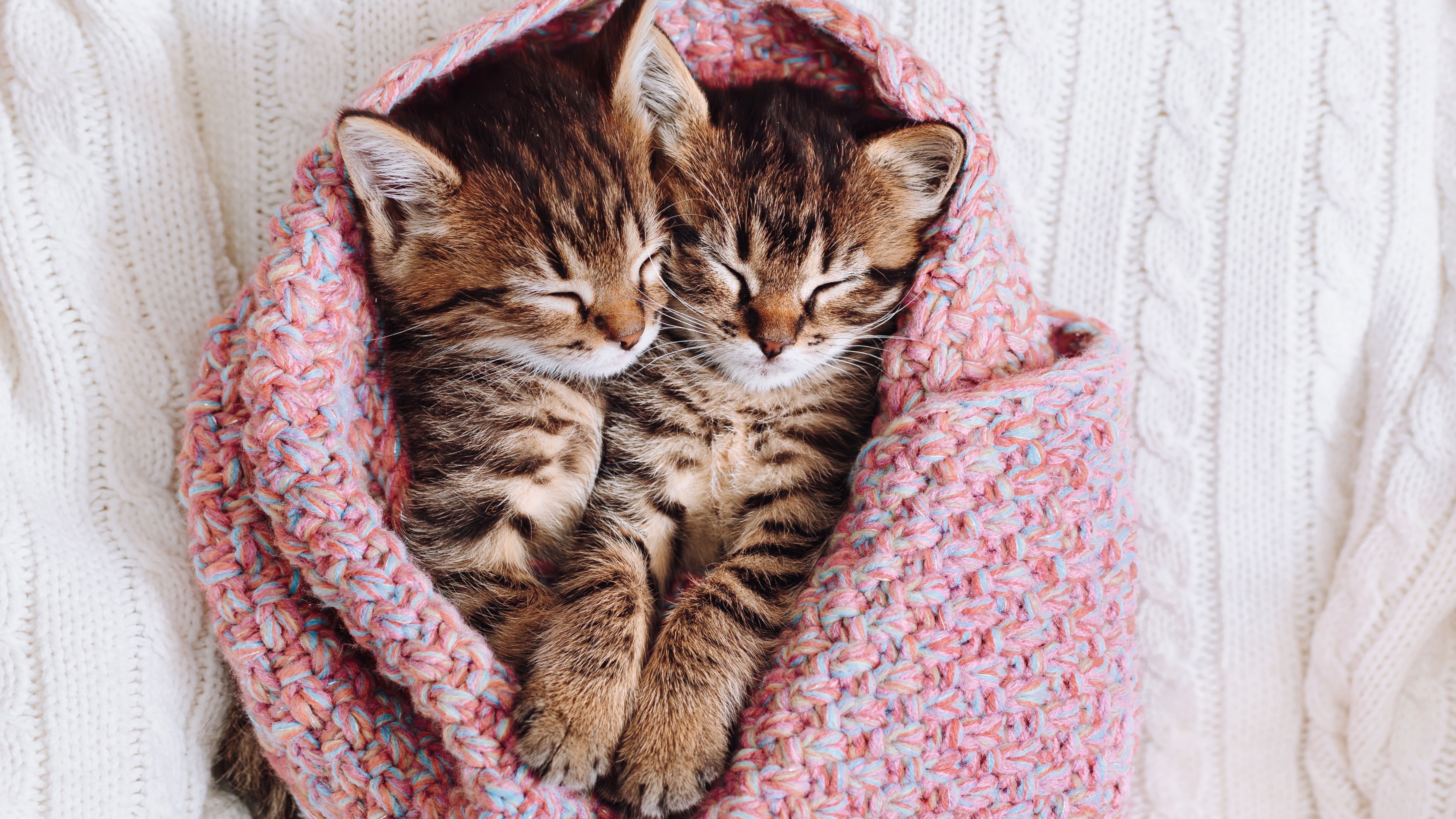
It can be really helpful to have a comfortable, quiet and secure space that your kitten can spend time in when you're not able to supervise them or they need a rest. You can choose a specific room for this or consider investing in a suitable playpen or crate that you can pop your kitten in. Wherever you choose to set up this space, ensure you furnish it with some cozy blankets and a few toys to make it feel like home.
Enjoyed this? Read: Bringing home a new kitten and new kitten checklist

Kathryn is a freelance writer who has been a member of the PetsRadar family since it launched in 2020. Highly experienced in her field, she's driven by a desire to provide pet parents with accurate, timely, and informative content that enables them to provide their fur friends with everything they need to thrive.
Kathryn works closely with vets and trainers to ensure all articles offer the most up-to-date information across a range of pet-related fields, from insights into health and behavior issues to tips on products and training.
When she’s not busy crafting the perfect sentence for her features, buying guides and news pieces, she can be found hanging out with her family (which includes one super sassy cat and a kitten), drinking copious amounts of Jasmine tea and reading all the books.
She has written for a range of publications, including Fit&Well, Top Ten Reviews, LiveScience, Goodto, and Product Hunt.
